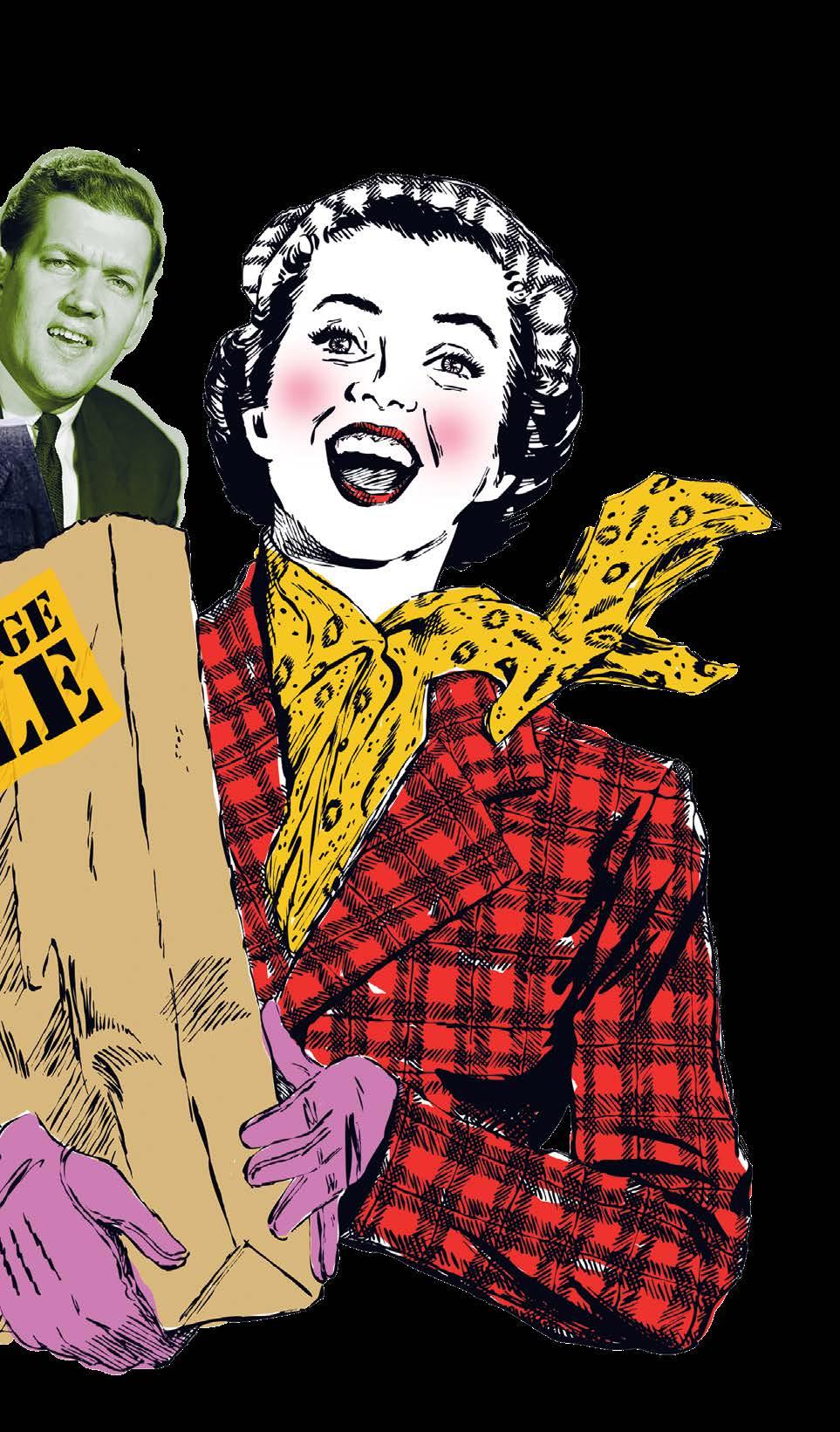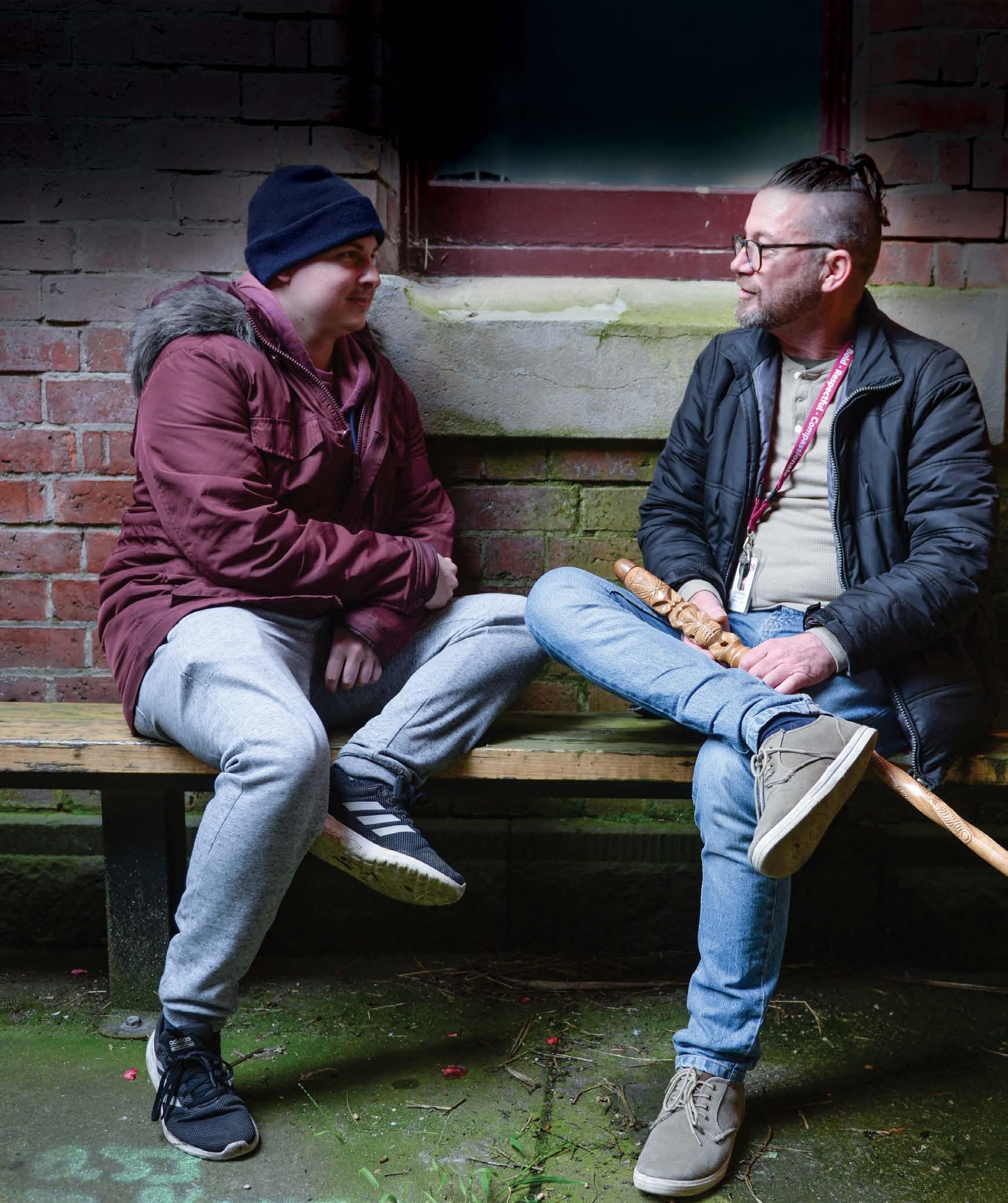




Uniting AgeWell wishes
Crosslight readers and families peace and happiness this Christmas and New Year.
Uniting AgeWell wishes
Crosslight readers and families peace and happiness this Christmas and New Year.
We thank our clients and residents for entrusting us with your care.
We thank our clients and residents for entrusting us with your care
To families and friends and the wider Uniting AgeWell community, thank you for your partnership as we worked together to keep those we care for safe and well during the challenges presented by COVID 19, floods and more.
To families and friends and the wider Uniting AgeWell community, thank you for your partnership as we worked together to keep those we care for safe and well during the challenges presented by COVID 19, floods and more.
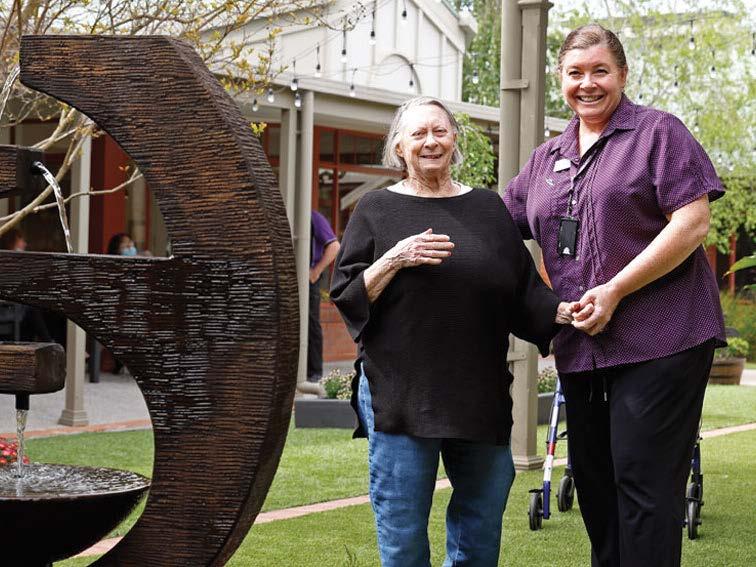
And heartfelt thanks to our staff for making a difference to the lives of older people by providing care and support with kindness and respect, helping them to live well every day of the year unitingagewell.org
And heartfelt thanks to our staff for making a difference to the lives of older people by providing care and support with kindness and respect, helping them to live well every day of the year. unitingagewell.org

I am expecting a very different Christmas this year, for which it’s very difficult to do too much planning. Robyn and I can’t commit to particular plans around Christmas gatherings because very close to the date that we celebrate Jesus’s birth, we are expecting a birth, too! That makes this a time of anticipation and hope, tinged with some anxiety and discomfort.
It feels like a very big, universechanging and life-changing event, as well as an intimate, tiny, vulnerable event. There are ways that it is both.
I find myself wondering – and praying – about the world into which this child will be born, and the Church that this child will find in their growing. The Uniting Church has an important place in sharing the gospel in Australia – that much is clear. But I wonder what the Church will look like as this new child grows into maturity.
Will they find the Church walking in Jesus’s way, finding strength and sharing hope as First and Second Peoples together? Indeed, will the whole nation have travelled further on the journey of Voice, Treaty and Truth-telling, and will we have owned our part in that journey?
How will the church be expressing its rich multiculturalism?
In what ways will we have focused the use of our property and resources to best witness to and share Jesus’s transforming love – in worship, in the life of faith communities, congregations, and agencies, across all generations?
As I pray about these things I’m excited about what God will bring because the gospel will always be about transforming lives, in the sharing of God’s faithful love.
For some people around the Synod at the moment, there are more immediate concerns than thoughts about how the Church will look in the next decade.
For those who are dealing with the impact of the floods, in communities where homes, farmland and tourism are being struck, and where mosquitos are
now rife, the impacts of the floods are going to be felt for a long time.
As the climate becomes more “energetic”, relearning how we live with the environment is going to be part of the context for the future church.
Advent is a time in the Church’s year that calls for a serious look at the state of the world. Advent draws our attention to the cries of the prophets and the Psalmists: longing for justice, longing for relief, longing for the fullness of the kingdom (or kin-dom) of God and for God’s will being done on earth as in heaven.
Advent invites us to see clearly the challenges that are around us, and to pray for God’s response.
God’s response in the first Advent was found in the birth of Jesus.
It can be read that the whole universe bent around this event, with animals and angels, people from varied cultures, and even the stars of the sky moved to focus on this event.
Whether that’s read poetically or literally, it is the event which began a huge movement in this world: God taking vulnerable flesh, and leading the way in reconciliation and love, even by the path of the cross. This was a universe-changing event.
It was also an intimate event: in a tiny corner of Bethlehem, a tiny baby, cradled in the arms of a young mother, with Joseph at her side. The presence of God in intimacy and love.
The birth of Jesus also gives shape to our ministry and mission: God reaches out within humanity to share God’s lifetransforming love.
I give thanks for the ways that the Church continues to reflect that through the gifting of the Spirit.

In this time of Advent, as I wait for the birth of a child, I pray for the Church’s continuing contribution to the shape of society and to the blessing of all God’s people in the years to come.
Grace and peace, David
"Advent invites us to see clearly the challenges that are around us, and to pray for God’s response."By Rev Jennie Gordon
Christmas, they say, is a ‘family time’. In most families there will be at least one empty chair, an absence amongst those present, for whatever reason. As we get older the table might be filled with new family, partners and children’s children, as the candles of remembrance multiply.
These poems began with my little sister. When you’re grieving it helps to find routines and practices that give your body somewhere to go, brings a creative focus for your mind and allows the Spirit in, to refresh your soul. After she died, my father and I found weekly time
together to read, to listen and to write a collection of poems and prayers based on the Revised Common Lectionary. These poems are from our book, Dad and Daughter and represent that fiveyear journey we shared.
Working night shift as a midwife means that the midnight Christmas Eve service has always been my favourite. For many years after I was ordained, a friend would come to where I was leading worship and offer an angelic ‘O Holy Night’. Bedside, she sang my sister’s passage home with that same song.
Wherever you are this season, may
these poems find a way to bring you blessing. May they creep in beside you and birth a new hope, screaming with life, cradled with love.
Rev Jennie Gordon is in placement as Resource Minister, Pastoral, with the Presbytery of Gippsland. A digital copy of Dad and Daughter is available for a donation to the Act for Peace –Christmas Bowl Appeal, by contacting Jennie at pastoral.ucagipps@gmail. com
Here are three poems taken from Dad And Daughter, with accompanying reflections:


Luke 2: (1-7), 8-20
you find us in the midst of our routine lives doing what we always do and frighten us with tremendous glory

and if we dare we leave the fields with haste to see for ourselves to seek the sign to find the love born for us
and when we’ve made it known we’ll bring it home with endless songs of wonder

if we dare
 Reflection by Lisa Carey
Reflection by Lisa Carey
I have been thinking of this poem for weeks now. It has circulated in my head – and my heart. It is both a challenge and a promise. Some days I feel that the challenge is just too big for me. I have been thinking about bravery, the depth of my faith – what would it take for me to leave all I know? Other days I think about how I talk about my faith and how I live it out into the wider community. The promise of love born for us and the knowledge that it is to be shared.


I love sitting by a campfire on a chilly winter’s night, looking up at the sky and the millions and millions of stars that you can only see from the bush. One night, I saw a meteor burn up as it flashed across the sky. It was one of those things that you cannot adequately describe to others. It was both terrifying and awe-inspiring.
I wonder what I would have done if I was
one of those shepherds? Just doing my job, out in the hills, minding my own business –probably sitting around a fire keeping warm in the cool of the evening with my work mates.
Blinded by the great light and noise of a sky full of angels.
Would I run and try to hide behind a boulder? Pull my rug over my head to block it all out? Would I hold my breath wondering if we were all doomed (which I did when I saw the meteor – I obviously watch way too many disaster movies!).
Or would I dare to leave the known to venture into the unknown, the unfamiliar? Would I recognise the signs – would I believe enough to discover more, leaving my comfort zone to seek out the answer to the call ...
Luke 2: 1-14 (15-20)

the receiving blanket was warm under my arm to catch and keep the heat time stretched out like toffee oozed into the corners of the room sticky and ungraspable night noises made their way unheralded, sharp piercing the membranes of possibility the world lingered just beyond the door straining for a sound when he arrived I felt his warmth and weight watched him breathe dried and kissed his head and gave him to his mother who tucked him into her heart and counted his fingers and toes he is born
At Christmas time we are reminded that Jesus needed fathering and mothering. That the divine, when it turns up in our world needs attending to and attention, a warm blanket, a quiet space, open arms and a welcoming kiss from us who know what hides in the shadows of the world outside, waiting to receive this bundle of life and light in a different way.
God becomes present in the night as we catch flickers of light and love. A door stands open, a woman bears the pain of birth, a father accepts the role of
tending to a new beginning incarnating in vulnerable flesh. God, the divine, has fingers and toes, cries and shows the toothless smile of an infant that needs a nappy change. Falls asleep in Mary’s arms, reaches up to Joseph to be lifted on to shoulders, rocking him until the cramps in his tummy start to ease. A baby that has no other option but to entrust himself to others, trust that those who welcomed him will protect and care for him, creating space for him to flourish and mature.


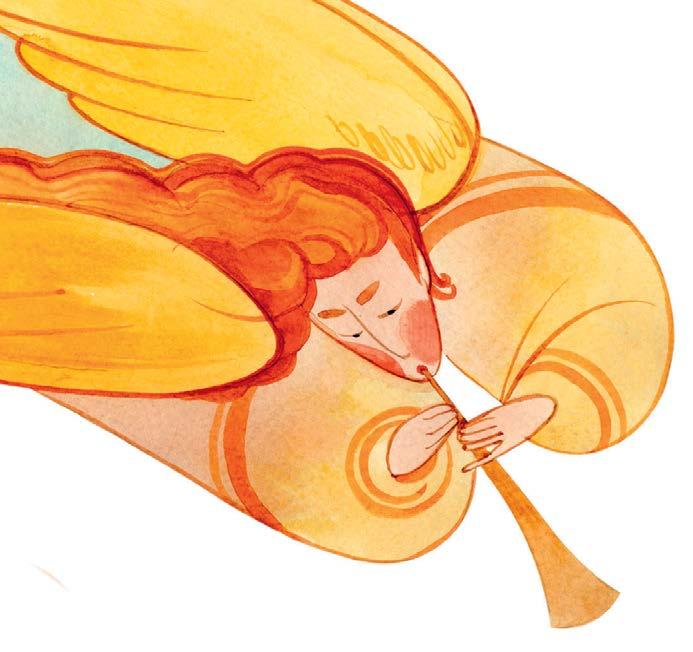
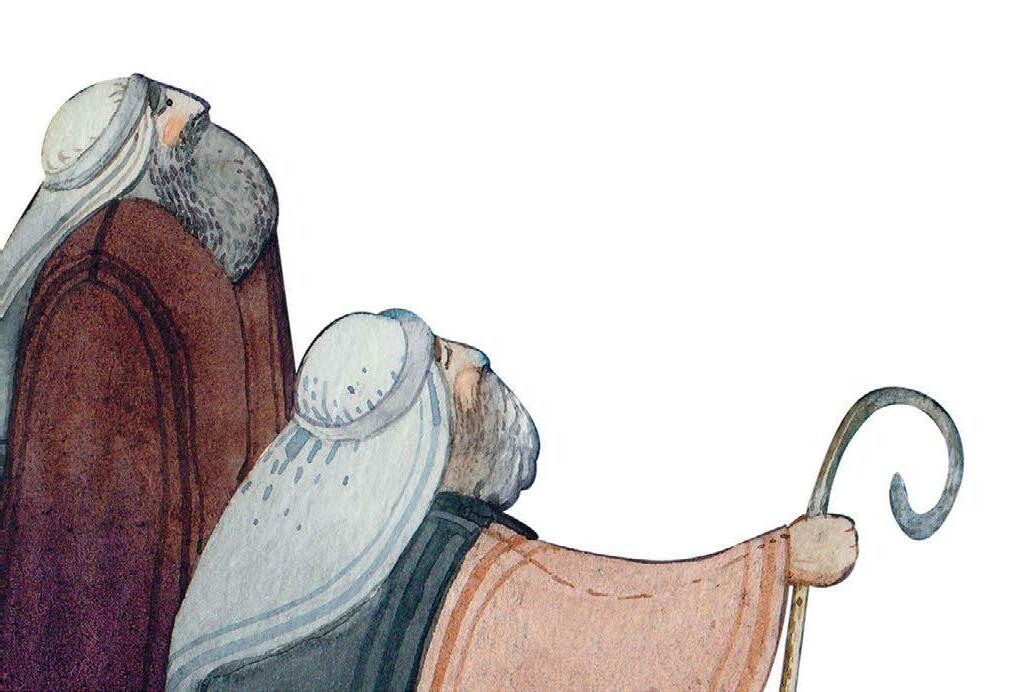

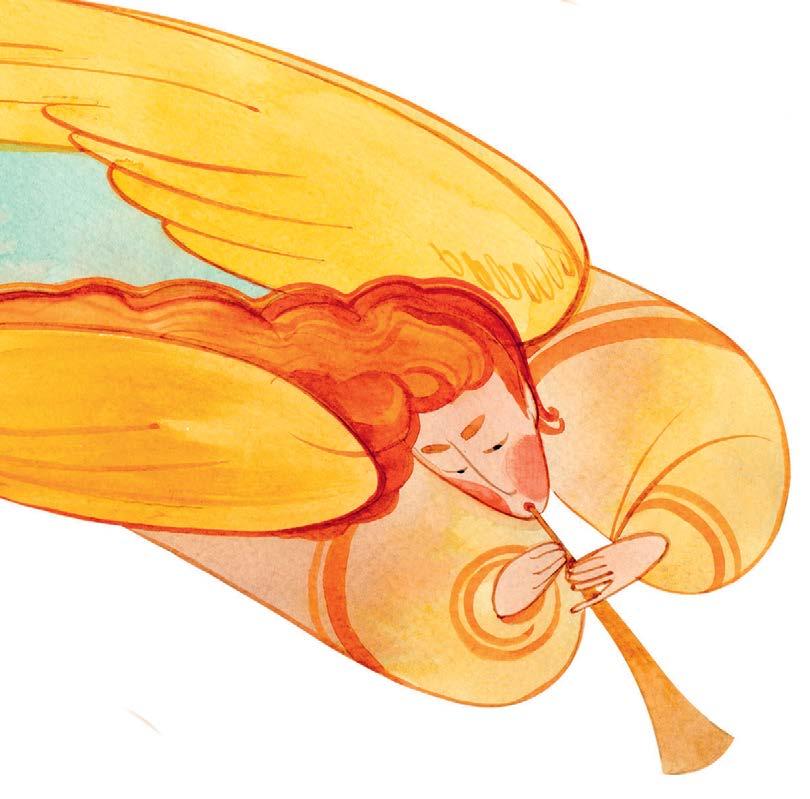
In the shadows, the cross already stands waiting. Like so many other parents over the ages the hearts of those who received, welcomed and nurtured him will break with the grief of another life lost to the senseless cruelty of violence and injustice. God is there, said Eli Wiesel, right there where the innocent are made to suffer, showing up in the middle of the deepest darkest night and taking on their flesh. God turns up, as a part of a displaced young family, turns up in the shelters of refugee camps across the world, turns up where two people welcome a little bundle of life into their hearts and home, wherever that may be, and are prepared to give of themselves in love no matter how much heartbreak may follow. Make room for hope, take care of what is entrusted to them to nurture it and help it grow.
It could be you and it could be me. Invited to make room, pay attention, count the fingers and toes of hope and love that is seeking for a place to come home to. Called to love and give shelter as much as we can. Even if it is only a little. Feed it, nourish it so it can grow and give the Divine a chance to incarnate again, love taking on flesh, opening doors into the night, letting the light in.
Matthew 1: 18-25
emmanuel God with us Spirit shaped scandal compassionate betrothed conscious of the dreams of sleep awake to the gift obedient to life

emmanuel God with us sign that is not static or unmoved risking the passage of birth breathes, cries is held, the promise; alive bewildered and bewildering emmanuel God with us named claimed word untamed by speaking unashamed to be born
The core of Christmas is the incarnation of Jesus; the Word became flesh. The miraculous event was the climax of God’s revelation, the highlight of God’s love for us. It is noted that like other divine works, it was not God’s one-man show, but an amazing collaborative work with ordinary people.


Mary was a country woman who had nothing special; Joseph was a carpenter, a working-class man; the three wise men were ethnic minorities and strangers; and

the shepherds were local hired hands, some of the most marginalised in those days. They were all run-of-the-mill, but their roles were special in completing God’s salvation plan.
The way that God has worked with human beings reveals clearly who our Lord is. Particularly, our God is a personal God. He likes communicating and interacting with his people rather than commanding them unilaterally from ‘up there’; he prefers working together to working alone; he shows no discrimination when calling people to the divine ministry; and he is always willing to bring himself down to our
level to communicate, like parents trying to connect with their children. Jesus’s incarnation, the event of Emmanuel – God with us – shows most dramatically the identity of God.
In this miracle, Mary, Joseph, the three Magi and the local shepherds were like a bridge connecting their neighbours to God the Emmanuel, which shows what our ultimate purpose is. Not only they, but we were called to make the wonders of Emmanuel known to our family and friends, to our neighbours and even strangers in our community and beyond.

What’s remarkable is that the incarnation of Jesus is not a one-time happening, but is an ongoing event because God’s salvation ministry is not finished yet. Although Jesus might not be born as a baby again, his incarnation will still happen in mysterious ways here in this place; the miracle of Emmanuel will not stop until all human beings can be restored.
In this regard, American theologian Ron Rolheiser argues as follows: “The incarnation began with Jesus, and it has never stopped … God takes on flesh so that every home becomes a church, every child becomes the Christ-child, and all food and drink become a sacrament. God’s many faces are now everywhere, in flesh, tempered, and turned down, so that our human eyes can see him.”
Yes, the divine incarnation, started with Jesus, has never stopped. God still takes on flesh so that every one of us can see and meet him personally. To do this, he always looks for another Mary, Joseph, the Magi, and the shepherds who are “conscious of the dreams of sleep, awake to the gift, obedient to life”, who hold “the promise; alive bewildered and bewildering”. Through those who say “yes” to the divine invitation and willingly endure sufferings and difficulties to do God’s work, “Emmanuel, God with us, named, claimed, word untamed by speaking, unashamed to be born” will be among us here and now. Amen.
Having lived in George Town since 1961, Beryl Osborne is very much a part of the heartbeat of the bustling community situated in Tasmania’s north east.
Beryl has been a member of the town’s Uniting Church since its 1977 formation and, before that, was part of the Methodist congregation. She is now its chairperson.
And while the church has been a constant presence in her life for six decades, she also derives great joy from her involvement in an interdenominational community group of volunteers based in the town’s port.
Seafarers Mission, located in Bell Bay, is the one of 26 centres around the country providing a valuable home away from home for sailors.
Beryl has been the heart and soul of that organisation for more than 30 years after taking on the organising role almost by accident, following an invitation in 1989 from her local Minister.
“Our Minister was actually leaving at
the time and said to me, ‘it’s all yours’, so it was kind of passed on to me,” Beryl recalls.
Thirty-three years later, Beryl is still at the Seafarers Mission and holds the positions of co-ordinator and treasurer.
“I basically run the place,” she says.
The mission provides pastoral care, a warm, friendly welcome and other assistance to sailors. Beryl’s colleague and fellow volunteer, Renato Zanchetta, says sailors come from far and wide, including the Philippines, India, Malaysia, Myanmar, Vietnam and some European countries.
“We provide assistance and care if they have been injured or are sick,” Renato says.
“They are often separated for many months from their families and are at sea for many weeks, and they look forward to coming ashore when they arrive in port.”
Beryl says the Mission’s great strength is that volunteers from a number of
churches have joined to provide the service.
“The very important point is that it is run by a number of denominations, so it’s very much inter-denominational, as are many activities that take place in George Town,” Beryl says.
“We all support each other and the Seafarers Mission was started as a combined churches project, so all of the churches in George Town feel that they own it. We’re very conscious of that and it’s a very positive thing.”

That feeling of positivity extends to the impact group members have in making sailors feel at home when they finally set foot on shore at George Town.
Before that happens, though, some preparatory work is needed.
“When a ship is due to come in to Bell Bay, we have already been dealing with the company’s agents and they let the people on board know the Mission is open in the port,” Beryl says.
“We normally open in the evenings,
seven days a week, but we will open at other times if requested.”
And while advances in technology have meant some changes have taken place, sailors still enjoy the opportunity to see a few friendly faces on land.
“When we opened in 1989, the most important thing for the sailors was the availability of a telephone so they could make contact with loved ones,” Beryl says. “Then computers came in and we have four of them available, with full WiFi provided.”
While COVID-19 meant many sailors weren’t allowed to disembark when ships came to Bell Bay, volunteers such as Beryl still ensured they were looked after, even if from a COVID-safe distance.
“All through COVID-19 we made up care packs for the sailors, with items like chips, chocolate and toiletries, which were the sorts of things they would only have been able to get by coming ashore,” she says. The care packs continue to be distributed and, given the harsh winters
“The other thing we do is provide phone cards,” Beryl says.
“The agents will send an order out to the ships and, when the sailors come in to port, the phone cards and activated SIM cards are ready for them. That is one of the most important jobs that we do because it allows them to stay in touch with their families.”
Despite being well into her 80s, Beryl has no plans to slow down, but hopes a new generation of volunteers might want to come on board. She still comes in a couple of nights each week and also does the required bookwork and grocery shopping to ensure everything runs smoothly. In doing her bit, Beryl loves the fact she is providing a service consistent with the Uniting Church’s values.
“We are living out the ethos of the Uniting Church with what we’re doing
here,” she says. “We mainly see our mission as being to the seafarers and, while we do support other things, most of our energy goes towards this one.
“The Uniting Church has been a huge part of my life and a place where I have always felt comfortable and welcome. We make the sailors feel welcome in the same way that the Uniting Church makes us feel welcome.
“I’ll continue helping while I still can and I hope that the Seafarers Mission continues for many years to come.”
Like Beryl, Renato is proud of the part the Mission plays in making life a little bit easier for sailors who spend long periods away from their loved ones.
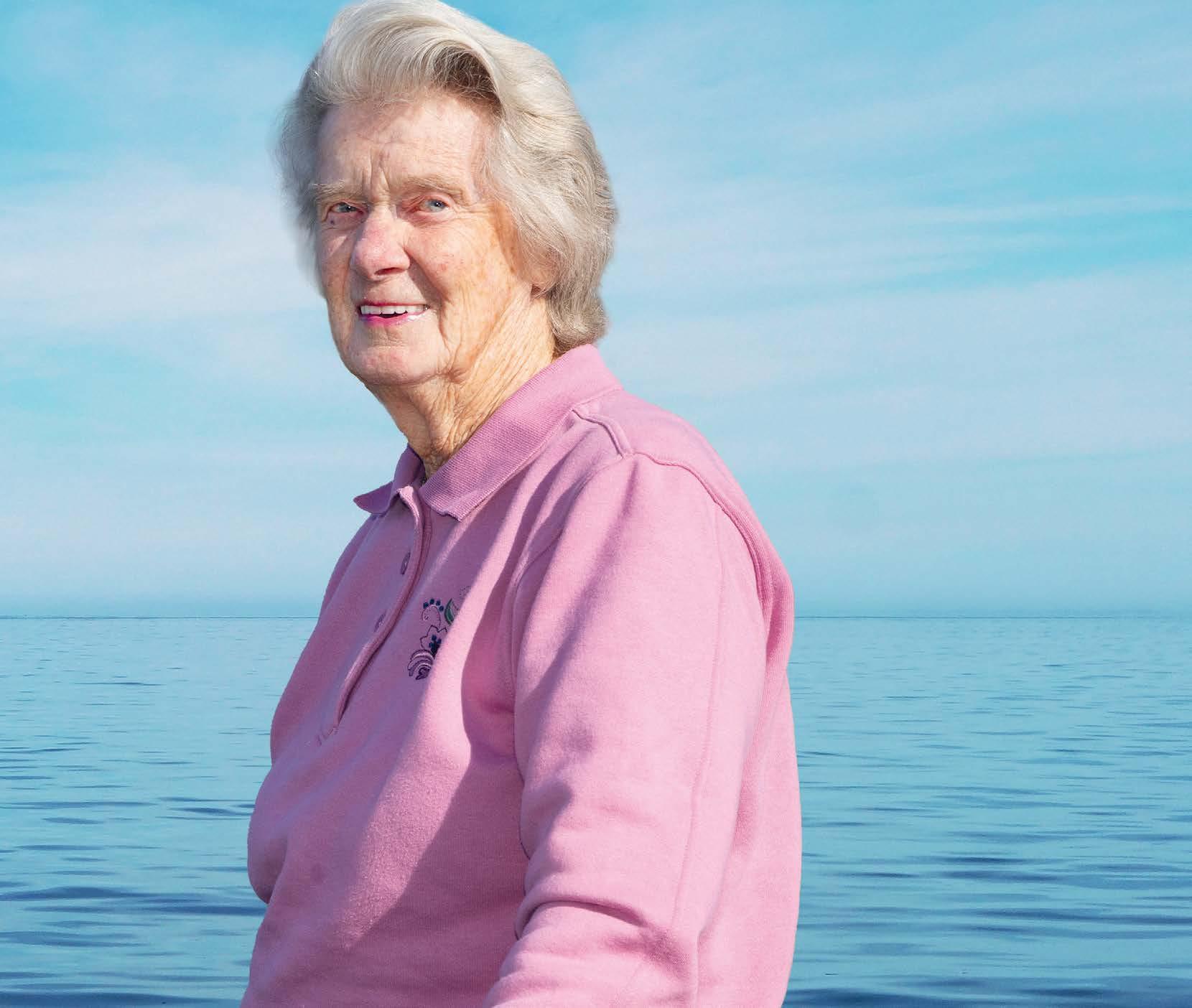
“It is very rewarding to see the smiles on their faces when they visit the mission,” he says.
“They have a tough time being on their ships, but this is their livelihood and they are providing for their families.” To assist the Seafarers Mission, contact Beryl on 03 6382 4124
In some circumstances, a tap on the shoulder can be the equivalent of the kiss of death. In others, it can be the kiss of life.
For new Victorian Council of Churches executive officer Sandy Boyce, taps on the shoulder have opened new worlds in her ongoing faith journey.
The first tap propelled her into youth work within the Uniting Church Synod of South Australia, which in turn set her on a path towards ordination as a Deacon in 2007.
The second tap came from a colleague in SA who had seen the VCC role advertised and believed Sandy possessed all of the qualities to be a success in the role.
As the peak body representing member churches, including the Uniting Church, the VCC provides a voice articulating a Christian response on issues within the community, including indigenous affairs, refugees, prisons, poverty and human rights.
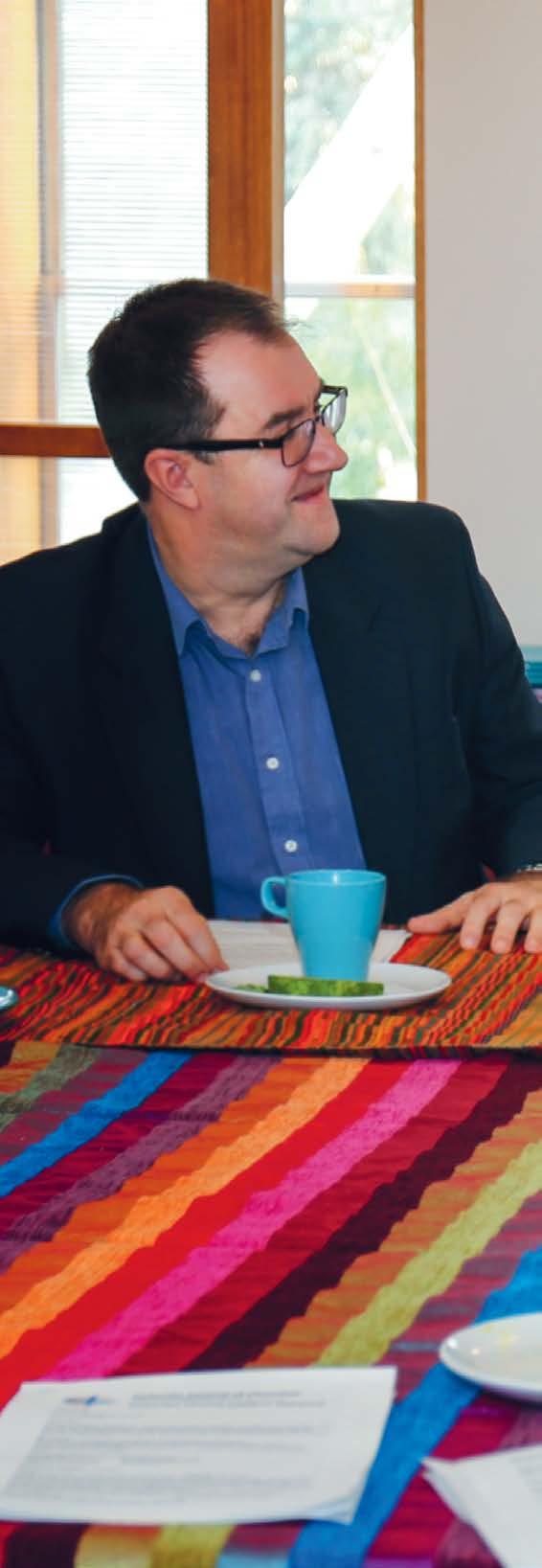
It is also a strong voice to government in an advocacy role.
“When I’m promoting the VCC I’m wanting to promote the churches working together and to have a voice of
integrity so the community can see the valuable work churches do, even if they aren’t part of the church themselves,” Sandy says.
After a 20-year teaching career, Sandy moved into congregational youth work for three years before taking on the role of youth ministry consultant in the SA Synod for six years.
She is co-convenor of the network of Deacons in the Uniting Church and the president of DIAKONIA World Federation, an international and ecumenical community of diaconal friendship.
Sandy is also a member of the Uniting Church Assembly Standing Committee, was Minister at Pilgrim Uniting Church in Adelaide for 12 years and has held a number of roles in organisations campaigning for better outcomes for refugees and the homeless.
Before her ordination, Sandy was the national faith development consultant in the Uniting Church, overseeing activities and programs for youth and young adults, before a six-year stint as the national People in Mission co-ordinator for Uniting International Mission (now known as Uniting World).
It’s fair to say Sandy has worn, and
continues to wear, many hats. The UIM role, which involved co-ordinating volunteers in placements with partner churches in Asia, Africa and the Pacific, had a transformative impact on her.
As part of the work, Sandy had an opportunity to visit partner churches which received volunteers from the Uniting Church in Australia, including Zimbabwe, Zambia, South Africa, Thailand, Malaysia, India, Sri Lanka and Tonga.
“Being heavily engaged with people in mission was, for me, really the ‘wow’ moment and it was absolutely transforming to be able to deal with churches in Asia, Africa and the Pacific,”
Sandy says. “I learnt through them a different lens on theology and it came alive in a whole different way for me.
“It was through those experiences that I recognised a call to Ministry as a Deacon in the Uniting Church, particularly in the diaconal ministry, so the calling for me was actually beyond the Church and out there in the world.
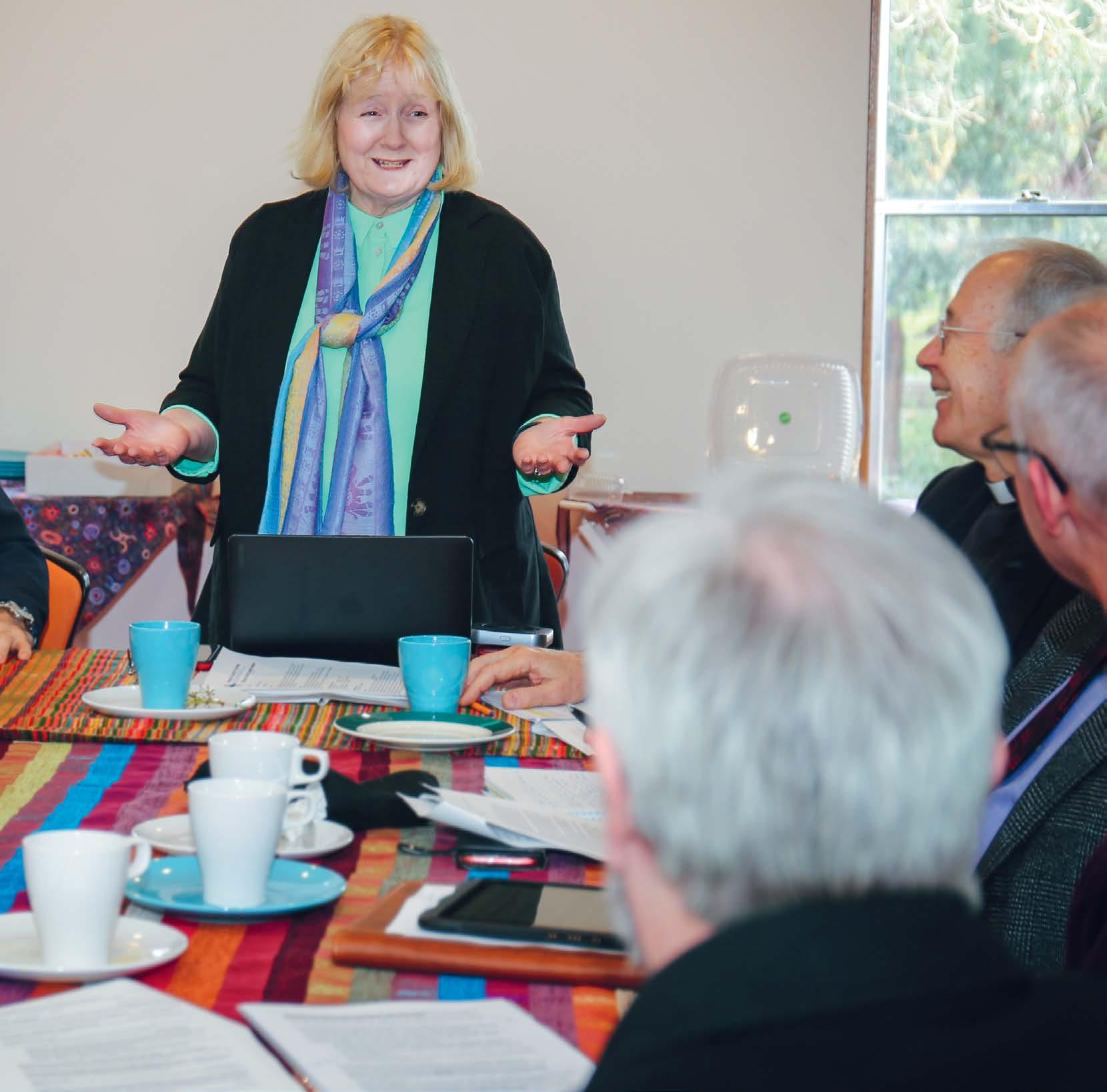
“We have a rich history of people going as missionaries to some of the churches in Asia and the Pacific, and these people were part of the transformation of these churches.
"It was these sorts of experiences that enlivened a sense of calling for me, and that was towards the diaconate
rather than the Ministry of the Word.”
It’s been quite a life journey for someone who happily admits she came to faith relatively late.
“I didn’t grow up in the Church at all, so a lot of those nostalgic and formative things that most people look back on (in terms of early faith) like Sunday School, church and youth groups weren’t part of my background,” Sandy says.
“Instead, I came to faith through the Christian fellowship group on the Flinders University campus in Adelaide.”
It was a time, Sandy says, of political and social unrest around issues such as the Vietnam War and apartheid in South Africa, and Christian university students
were leading the charge towards social justice. These were deeply formative years in her faith journey.
“It was a fairly giddy time in terms of international politics, and Christians were actively involved in engaging in social issues,” Sandy recalls.
“My introduction to the Church was through the chaplain at the university, who was very engaged in those activities, so it was a fusing of the social engagement and the public arena, as well as personal faith and discipleship.
“This was also a very creative time in the Church, where there were lots of arts and songwriting happening in an Australian context, so my
early pilgrimage as a Christian was sharing faith with some very creative companions, and that was very formative for my journey.”
As her faith grew, Sandy’s constant companion was social justice, a commitment that has only strengthened over the years.
“It took a lot longer for the theological and justice side of things to be able to have a conversation together, but they existed side by side and, as I grew in faith, I was able to see how the two were interwoven,” Sandy says.
“(I could see) how the disconnect between social justice and the community was unfortunate, because it diminishes what faith is about, from one of a purely personal experience to one of what Jesus demonstrated over and over again around compassion for the most vulnerable.
“But as those theological threads were interwoven with social justice, it really enriched my faith.”
As Minister at Pilgrim Uniting Church in Adelaide, that commitment to social justice was able to flourish.
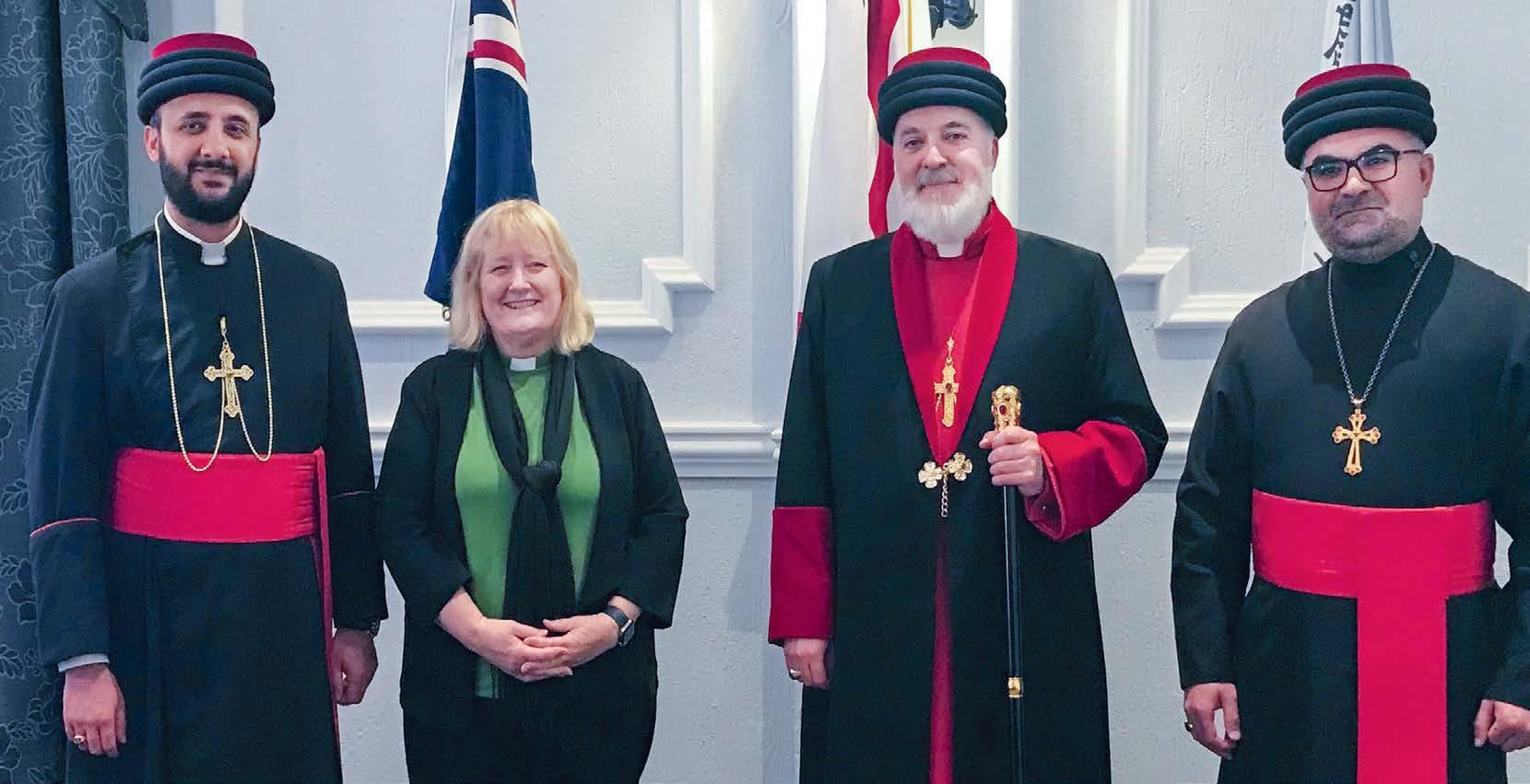
“Pilgrim has a very strong commitment to social justice, and literally on its back doorstep there are homeless people sleeping, so my role there was to have one foot in the Church, in terms of leading worship, and one foot in the community and knowing its concerns around issues like refugees and homelessness,” she says.
“All of this fitted very clearly within my sense of calling.”
As VCC executive officer, Sandy aims to continue ensuring the orginisation is heard, and says a 1952 ecumenical statement offers a guide to how churches can come together in that space.
In the Third Faith and Order Conference in Lund, Sweden, that year, the principle for ecumenical relationships was set out.
“Should not our churches ask themselves whether they are showing sufficient eagerness to enter into conversation with other churches, and whether they should not act together in all matters except those in which deep differences of conviction compel them to act separately?” the principle states.
Sandy says the Lund principle still resonates 70 years later.
“Instead of doing ecumenical things, Christians and churches should try to do things ecumenically, in particular, to do things together which are already a part of their normal life, that is to share a common life,” she says.
“At the heart of the ecumenical movement is this strong commitment to working together, a sense of partnering with other churches from other traditions. It’s about what we can learn from each other as we work together and about building relationships, trust and respect together as a witness to the Gospel.”
And while there is undoubtedly strength in numbers, Sandy points out that sometimes there may not be clear agreement among all VCC members on a particular issue.
“In terms of lobbying, it does become nuanced because there are some issues (we) can easily speak out on with a common voice, and need to have that voice heard in the public arena and can become known for that,” she explains.
“There are other issues that there may not be common agreement on, but when representing views to government it’s important to point out there may be a wide range of views and that government shouldn’t assume that all churches think the same on a particular issue, so representing that diversity is also important.
“Obviously churches can speak out on issues individually, but it’s stronger when we can speak out together on particular issues, like refugees or homelessness.
“It’s about building relationships with government rather than coming in with a particular viewpoint, and having mutual respect at the centre of the relationships, and to engage in those conversations respectfully so the integrity of the Christian churches is valued, as is the work of the government at its best.
“The VCC constitution clearly speaks about being advocates with and alongside First Nations people, and those who are most vulnerable, and that is what is at the heart of what the VCC has as its mandate.
“When I’m promoting the VCC I’m wanting to promote the churches working together and to have a voice of integrity so the community can see the valuable work churches do, even if they aren’t part of the church themselves.”
Call us 1800 668 426
Put food on the table - all year round.
Everyday we dig deeper to provide support when people need it most. We want to support everyone who reaches out to us, no matter what time of year it is - but we can’t do it alone.
Here’s how you can get involved in Food For Families:
• donate non-perishable food and essential items
• host a collection drive
• be a community drop off point for donations
• make a donation to directly support vulnerable people needing access to food.
Uniting is the community services organisation of the Uniting Church in Victoria and Tasmania.

When Pilgrim Theological College Rev Associate Professor Monica Melanchthon addressed a recent Synod Intercultural Forum event she spoke on a topic very close to her heart.
Monica’s talk on how the Bible can be read among marginal communities explored a theme central to her life and work: a strong commitment to those marginalised in society, particularly women in her home country India, and communities of people known as Dalits, the untouchables or depressed class.
“The Dalits are historic communities that suffer cumulative subjugation and discrimination, and they live a life of servitude, unmitigated suffering, and shame, governed by concepts of purity, pollution, and untouchability,” Monica says.
“They comprise about 25 per cent of India’s 1.3 billion people.
“Since one’s caste is a primary marker of identity, even conversion to the socalled protective and egalitarian faiths such as Christianity, Islam, Buddhism and Sikhism did not erase their identity as ‘untouchable’.
“Many Dalits are subjected to brutal atrocities by dominant caste groups and are victims of horrific violence and rape.”
Monica says the word “Dalit” comes from the root word “dal”, meaning oppressed, broken and crushed, and is a realistic description of their lives.
“It is an expression of selfrepresentation, used by Dalit activists with the aim to recover their past identity and project themselves as
By Andrew Humphriesa collective,” she says. “The term incorporates elements of a positive expression of pride, and a resistive surge for combating oppression.
“The policy of positive discrimination enshrined in the Indian constitution has led to further crystallisation of Caste identities despite its aim to eradicate discrimination and inequality.”
While she may now live thousands of kilometres from her country of birth, Monica is a strong advocate for the rights of Dalits and women.
She admits, though, that as a child she was largely sheltered from what life was like for the millions of Dalits who lived in India.
“I came to awareness of Dalit life and their plight only as an adult,” Monica says.
“My parents, my secular education and seminary training, and the church, did not introduce me or prepare me to understand and address the ill-effects of this stratified and hierarchical sociocultural system.
“It was actually while I was a student in the US working on my PhD that I would go to speak at forums about India and people would ask me, ‘so which caste do you belong to?’
“And I had absolutely no clue because that's the extent to which my parents actually sheltered us girls from this knowledge.
“So, it was being put on that spot that actually prompted me to discover something about myself and my roots and led me into a process of study and
enquiry to learn more about caste and particularly how caste functions within the Indian church.
“If you look at the mission history in India, and the growth of Christianity, particularly from the late 1700s onwards and into the early 1900s, most people who converted to Christianity came from these so-called ‘untouchable’ communities.”
Monica’s knowledge has shaped to a large extent how she now interprets the Bible.
“I identify myself as a contextual theologian,” she says.
“For me, context is important, and I want to interpret the Biblical text in a way that it meets the needs and aspirations of these communities that I represent.
“Doing theology in the midst of the stresses and strains of those who are ignored, rejected and sidelined requires going against the grain of traditional theological reflection that has been controlled and dominated by the privileged and the ‘upper caste’.
“Issues of diversity, marginalisation, authority, and Biblical interpretation present many challenges for Christian theological reflection in India.
“I don't interpret the Bible just out of academic interest. It's much more than that, it’s about ensuring that the Bible is interpreted for the welfare and the wellbeing of the community, and that it will serve or contribute to the welfare and wellbeing of the community.
“Our interpretations need to touch the
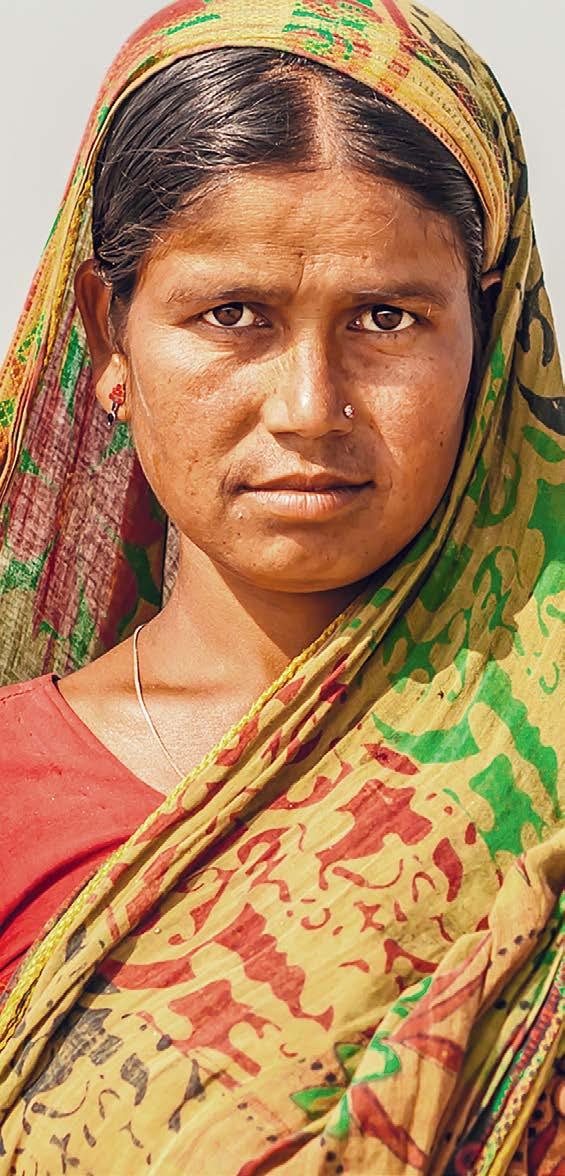
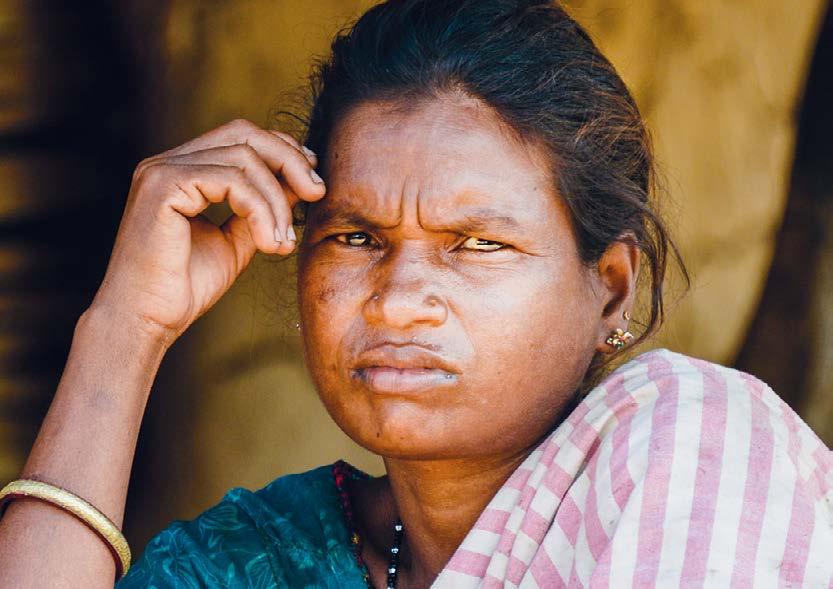
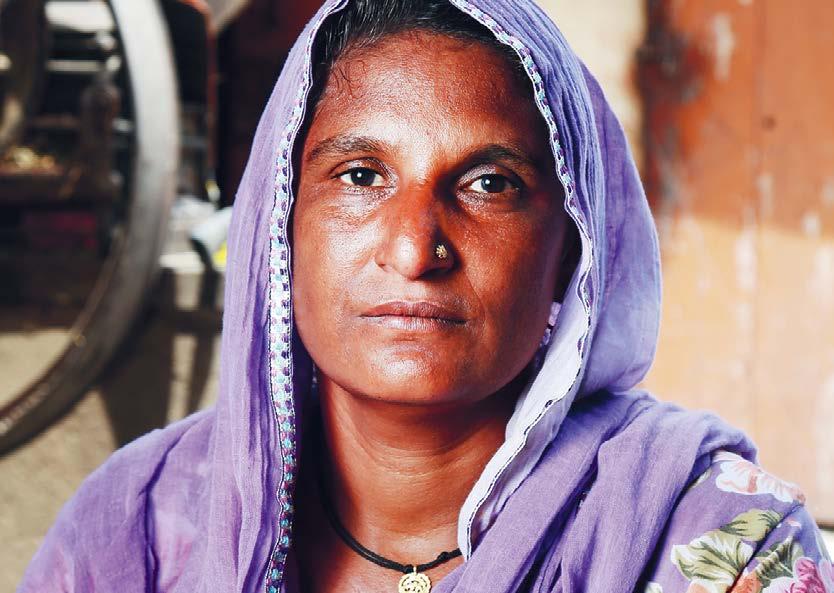
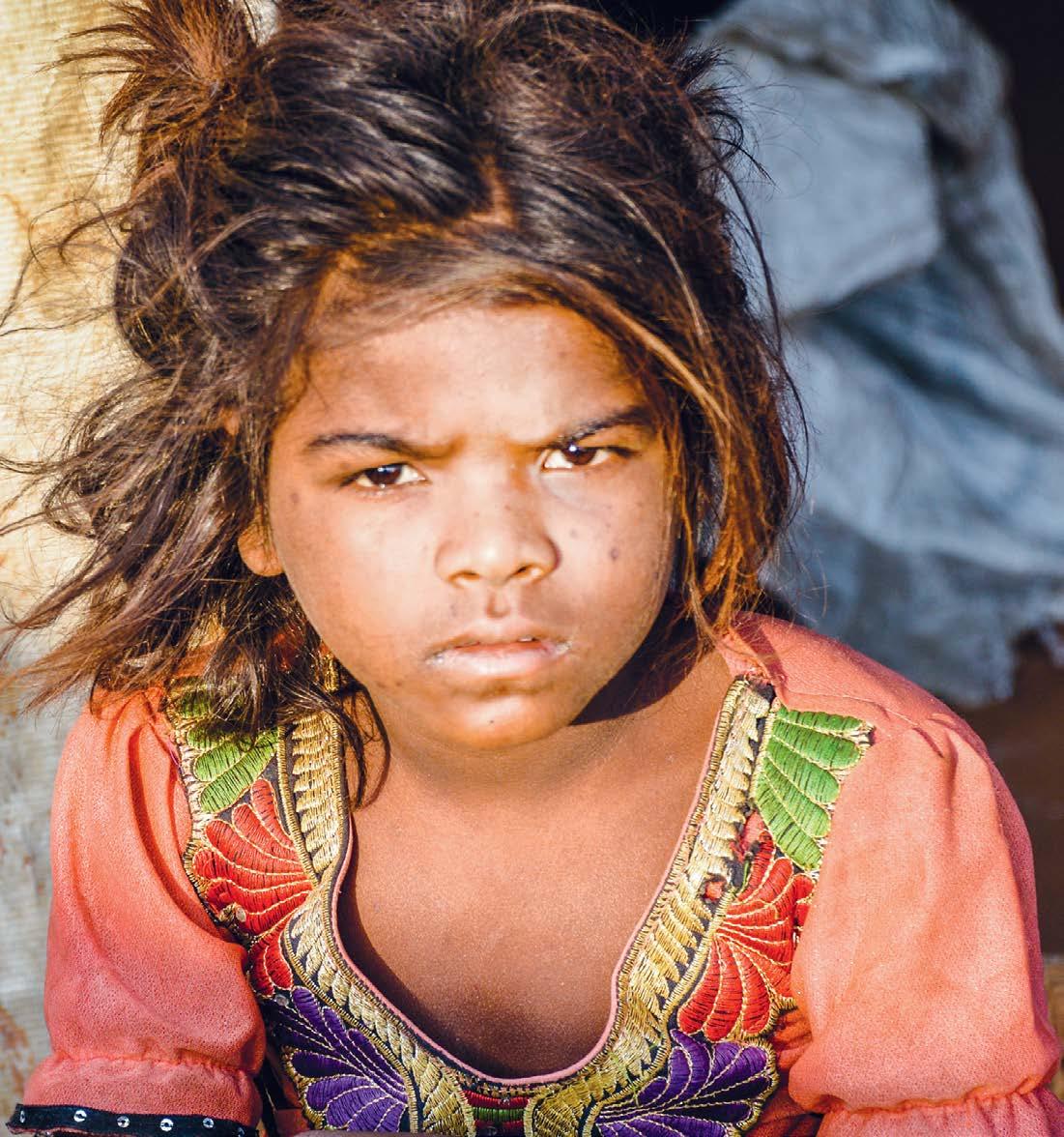
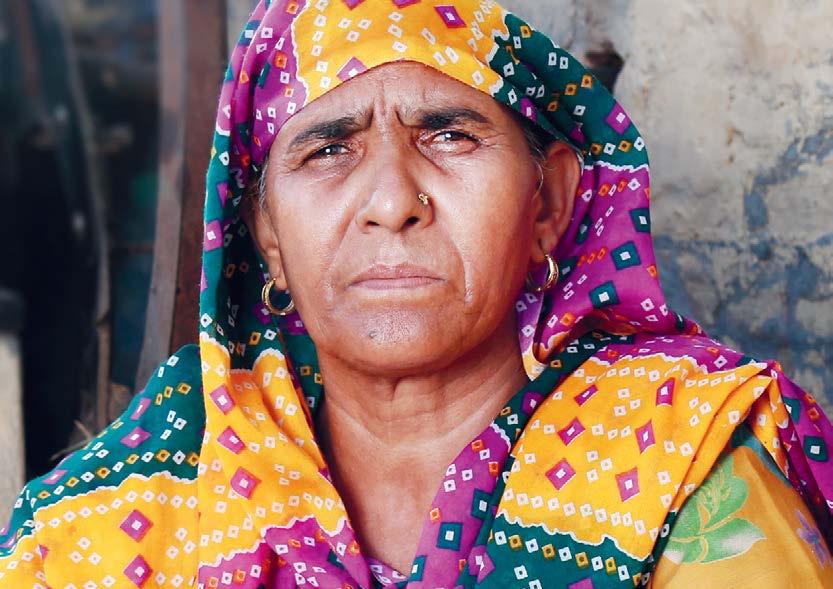
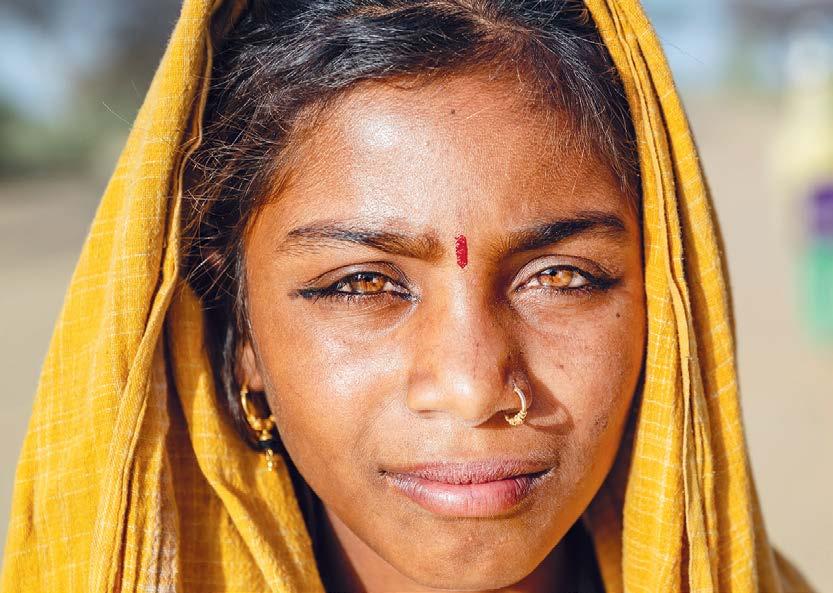
From P14
lives of the people we minister to and evoke resistance against discrimination, and transform their lives and their communities.
“So therefore the interpretations must meet the needs of the people who are searching for answers, and I guess as a Biblical interpreter I am asked to ponder, ‘well, what does the Bible say about this?’
“And so basically, it's interpreting a text that might address an issue, be it a fiscal, social, political, religious or economic one.”
Monica says her message to Synod Intercultural Forum members was that these communities, who are in the midst of struggle and are having to resist oppression every day, read the Bible in order to help them interpret life.
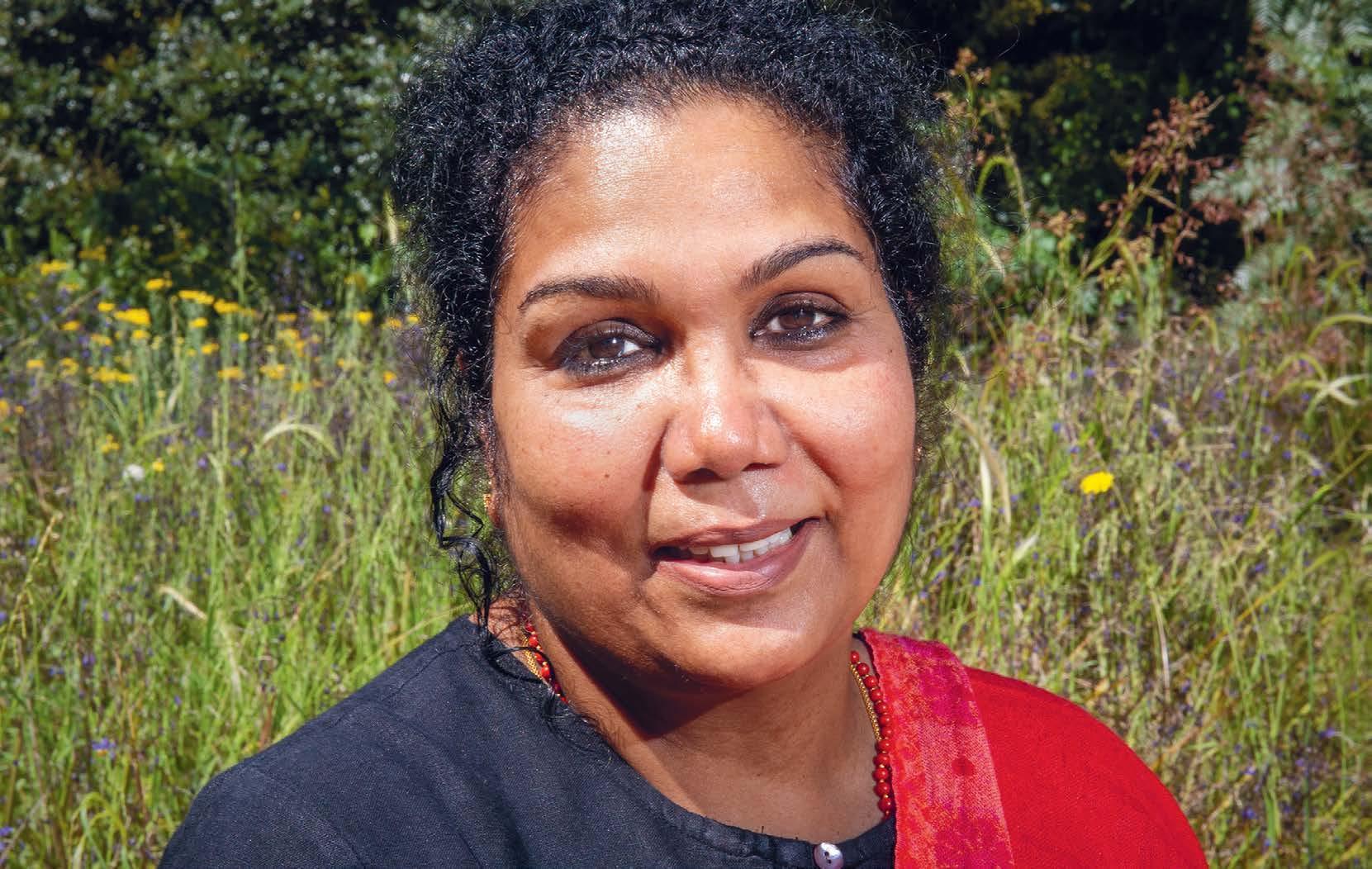
The Bible, then, plays an enormous role in uplifting the voices of the marginalised.
“In the 20th century, one of the very popular phrases that came out of liberation theologies in Latin America was ‘God's preferential option for the poor’, which suggested that God is in solidarity with those who are struggling, either economically or politically,” Monica says.
“The phrase became extremely significant and popular among
communities in struggle, and it's a phrase that didn't come out of a vacuum.
“It came out of the struggle for the people in Latin America.”
That struggle, and God’s intervention says Monica, goes to the heart of what the Bible is about.
“For example, look at the circumstances around the birth of Jesus,” she says. “I mean, where was he born, who were his first visitors, and who were the first witnesses and evangelists
seeing how the Bible can be a liberating tool for communities in struggle.”
Monica’s education and Biblical knowledge mean she feels empowered to continue speaking up for those on the margins.
“I have made a commitment, and I feel that I have the power, no matter how small it is, and the training and skill to push forward this agenda,” she says.
“So I'm unabashed about the perspective that I work from, and the commitments I have made.
“I think about how I can bring the Biblical text into conversation with an issue that I am asked to address, but to do so in a way that is edifying, liberating and transforming.
who spread the news of his birth?
“They were unclean, dirty shepherds, and this very clearly indicates that the Gospel writers, particularly Luke, were wanting to emphasise God's intentional association with people who were already on the margins of society.
“These were unknown folk, people with no power so, therefore, the people who read the Bible through a liberation lens, so to speak, hang on to these kinds of insights to inspire and to find the strength to empower communities in struggle.
“And so that is what they focus on,
“This is possible through adopting a critical stance that not only questions and understands the Biblical text in the context in which it came into being and the issues it was addressing in that context, but also what the Bible is saying to us today and how it can be applied to the current situation, and how it illuminates an individual’s or community’s life.
“The Bible is only fully and spiritually understood when its meaning comes to us and is experienced as a present reality.
“If it is read merely as a report of the past, it is functioning as a ‘dead letter’.”
"The Bible is only fully and spiritually understood when its meaning comes to us and is experienced as a present reality."
Pilgrim Theological College Rev Associate Professor Monica Melanchthon
Monica Melanchthon says the Bible plays an enormous role in uplifting the voices of the marginalised.
Image: Carl Rainer

For UCA members under 40, studying for a Diploma or Graduate Diploma at the University of Divinity. 50% fee scholarship.
Florence
For graduates of Pilgrim Theological College, undertaking postgraduate study at an overseas University or College. Fees and living allowance support available.
For graduates of Pilgrim Theological College, UCA candidates for ministry, or ordained UCA ministers, undertaking Masters or Doctoral Studies at the University of Divinity. Fee scholarships for two years.
For students taking postgraduate courses at Pilgrim Theological College. Details vary.
Fifteen years ago, Kevin Rudd was Leader of the Opposition when he addressed the National Climate Summit at Parliament House and described climate change as the “great moral challenge facing our generation”.
There was no time to waste, he said, as the world faced its greatest crisis.
“My intention is to harness the best brains and talent available in the country to get our response and the nation's response to climate change as right as possible,” he said.
“To do that, we have to begin by
fashioning, shaping and encouraging a national political and policy consensus on climate change.

“Our job is to listen, but subsequent to that, our job is then to act.”
Just over six months later, in November 2007, Rudd became our 26th Prime Minister and, for so many Australians concerned about what was happening to our planet, his climate summit address offered hope for meaningful work to address the impacts of climate change.
Yet in the 15 years since, Rudd, Julia
Gillard, Rudd again, Tony Abbott, Malcolm Turnbull and Scott Morrison made little headway in addressing that “great moral challenge” facing Australia and, indeed, the world.
The task now rests with Anthony Albanese, as all of the science tells us that we are edging ever closer to midnight in the race to save humanity.
In Melbourne, Uniting Church Senior Social Justice Advocate Mark Zirnsak has watched on as little progress has been made in the 15 years since Rudd’s Parliament House address.
“I would argue that he was correct and that climate change is a great moral challenge globally,” Mark says.
“I don’t want to suggest that it’s an end-of-the-world scenario, but obviously its harmful impacts are being felt by hundreds of millions of people around the world, and that would continue to increase due to a lack of action.

“We have seen some progress at a global level and some countries have committed to taking action, but the action taken hasn’t lived up to the promises made.
“It’s one of these difficult areas that requires global effort across the board and there can be a selfish advantage a country can get if it doesn’t do its share and everyone else kicks in to make up for what it’s not doing.
“So you’ve got this temptation to say ‘we’ll let others fix it and we’ll ride on their efforts’.”
It’s also an attitude sometimes expressed by countries such as Australia suggesting they contribute little overall in the way of greenhouse emissions and, on that basis, should be cut some slack.
That, says Mark, is a dangerous attitude and it’s countries such as ours that should be leading the way in reducing emissions.
“If you actually look at our emissions, we are, from memory, in the top 20 among the biggest emitters,” he says.
“If you ran that argument about emissions per country with Australia as your example, you would end up saying ‘oh, there are 170 countries that can afford to do nothing because they emit less than us and therefore all of the heavy lifting has to be done by a handful
From P19
of large countries who emit more than us.
“But if those large countries reduced their emissions to zero, you still wouldn’t get to the emission reduction that we need because those other 170 countries, including Australia, aren’t doing their bit.
“It seems a convenient argument to make, but it’s one that sets us on a path towards enormous damage and harm globally.
“A valid counter argument is to say that it’s fairer to compare on the basis of per capita emissions per country and, on that basis, we are right near the top.”
At a national level, the Uniting Church Assembly has called on members to address what it describes as a
“climate crisis”. “The Uniting Church calls for urgent action towards a more sustainable planet and support for those most impacted,” it said ahead of the release last year of a National Climate Action Plan which aims to encourage action across the Church.

“We seek the flourishing of the whole of God’s Creation and all its creatures.
“We act to renew the Earth from the damage done and stand in solidarity with people most impacted by humaninduced climate change.
“Government, churches, businesses and the wider community work together for a sustainable future.”
The document commits the Uniting Church to reducing emissions by five per
cent each year, with an end goal of achieving net zero emissions by 2040.
It recognises the danger caused by rising greenhouse gases, which have resulted in rising sea levels, extreme heat and storms, longer droughts and bushfire seasons, and the loss of coral reefs, but also acknowledges the fact that the impacts of climate change are not always distributed equally.
“We recognise that the impacts of climate change fall disproportionately on those who have contributed least to human-induced greenhouse emissions, including our neighbours in the Pacific and elsewhere,” our Church says.
“For many years, the Uniting Church has spoken out about the need for greater action on climate change and to care for God’s
Sue Strong is a member of the Port Phillip West Presbytery’s Task Group for Climate Action.creation. Our statements in 1977, 1991, 2006 and 2018 have outlined the genuine desire of the Uniting Church in Australia to see more done to protect our environment.
“We also acknowledge that our words are not enough.
“It is time to move from resolutions to urgent, church-wide action to reduce greenhouse gas emissions from our own activities and build credibility in our continuing advocacy work.
“This National Climate Action Plan is intended to drive that action.”
With the Assembly’s net zero target by 2040 in mind, Mark says the Victorian and Tasmanian Synod has begun the process of
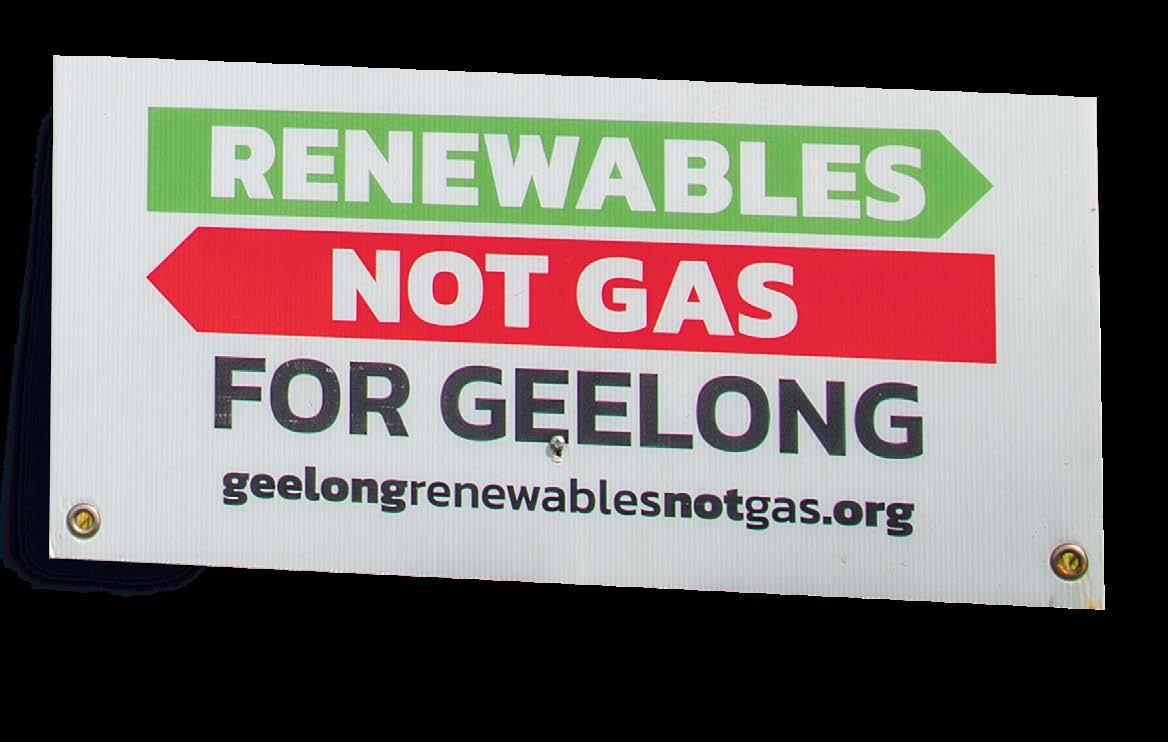
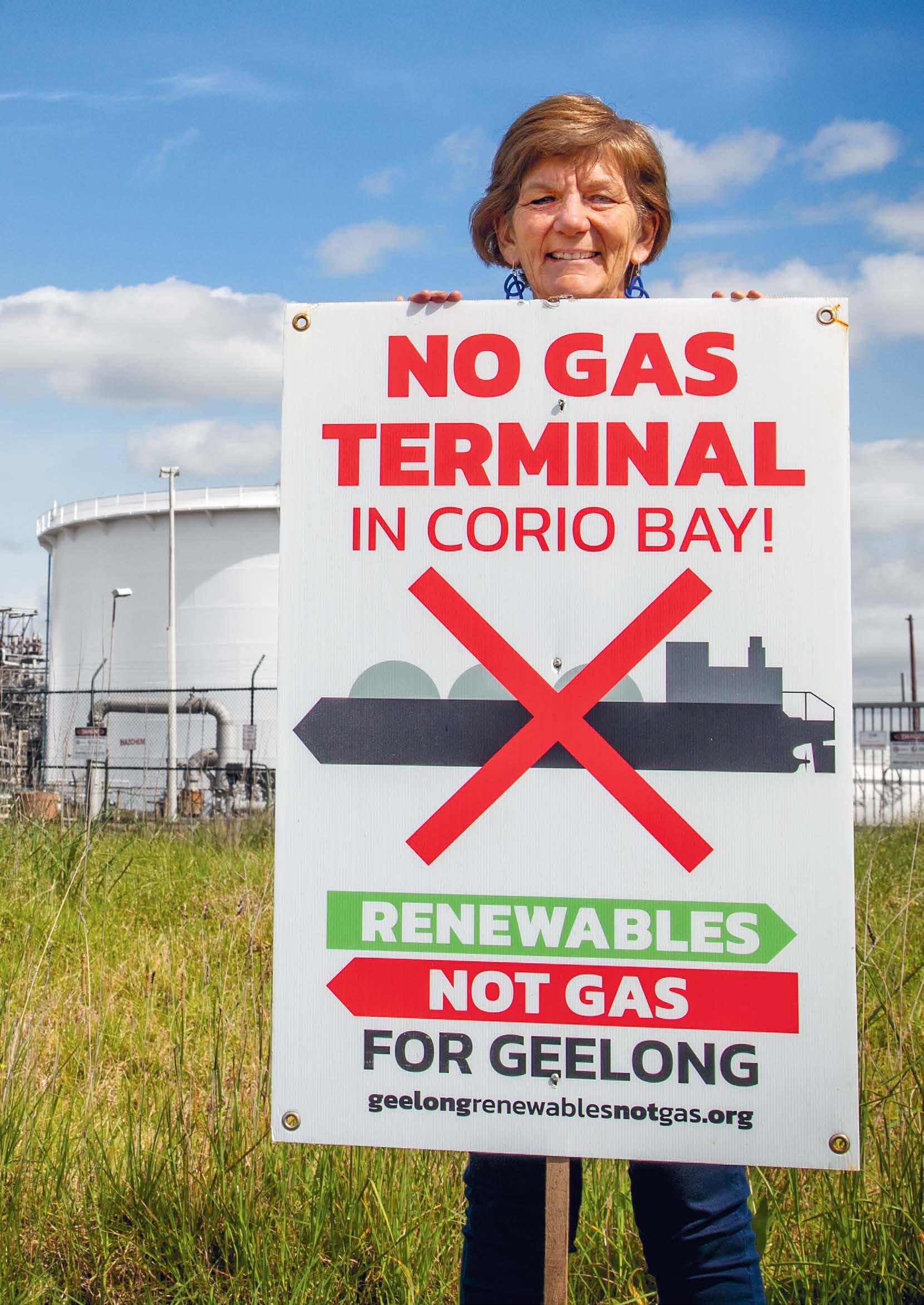
examining how it might reach that target and what it would mean for the Synod.
“A discussion paper, involving the Synod’s Climate Action Taskforce, will go out to members and it seeks to fully explore what it will mean to get to net zero, what kind of efforts we would need to make in doing that, and what the cost would be,” Mark says.
“So there isn’t a pre-determined outcome on that and our challenge has been that while there are parts of our Synod that are very dedicated to seeing a reduction in emissions, it would be fair to say that other parts of our organisations believe there are other priorities at this stage and that reaching net zero emissions at a Synod level is going to present quite a challenge.
“A part of the discussion will really be about how we collectively decide how to move forward on this.
“At the very least, the Synod should be committing to doing all that we reasonably can to reduce our emissions, but whether we can agree to join the Assembly in the net zero position is something that needs a lot of discussion.”
Mark hopes to have the discussion paper released within the next month or two, before a way forward is identified that can be taken to a Synod Meeting.
Pressed for a personal opinion on the net zero by 2040 goal, Mark says it requires a delicate balancing act.
“Climate action is a really important issue, but at the same time I think the
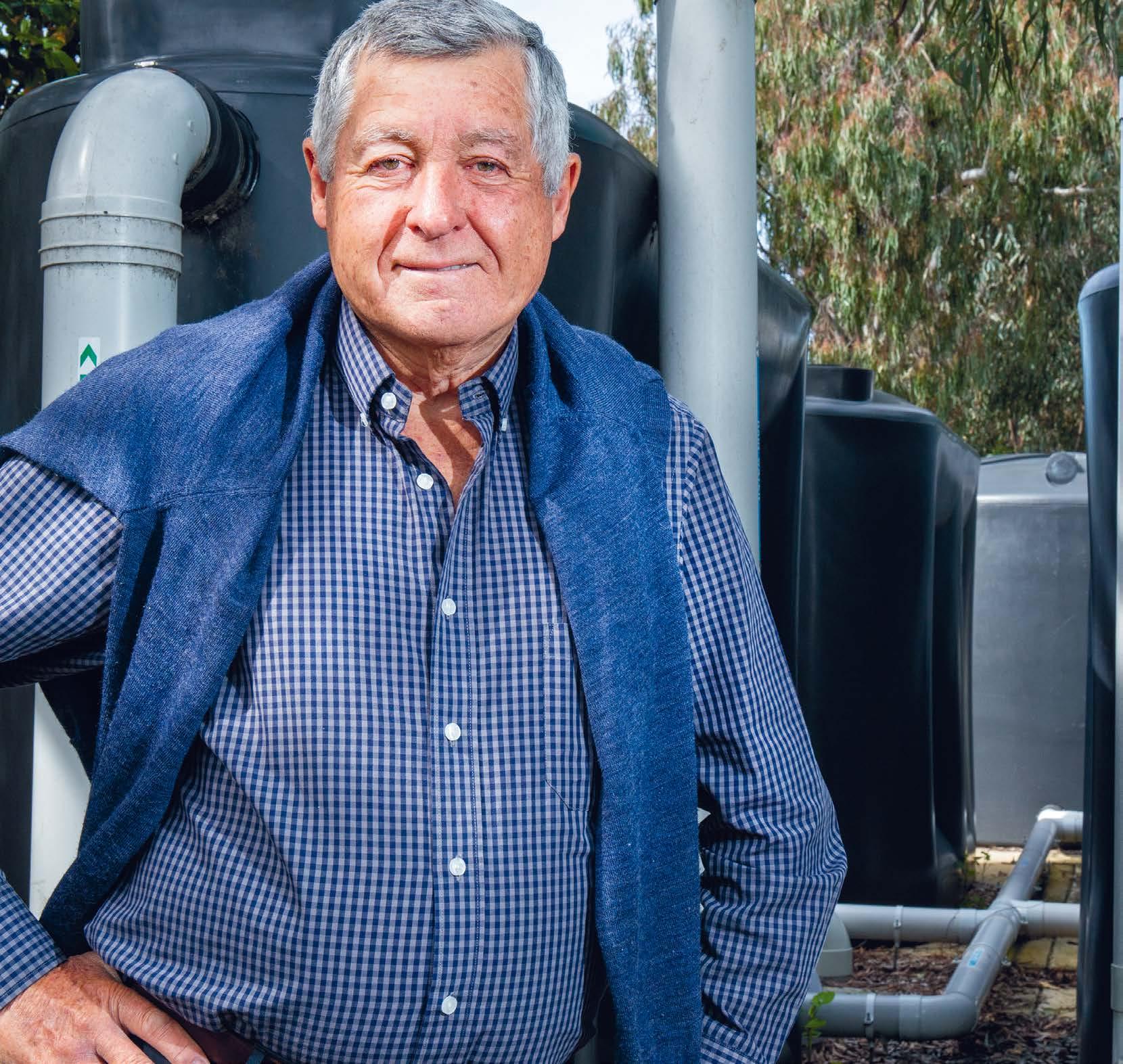
Church is going to see that it has other priorities,” he says.
“In terms of my own view, it’s that the Synod membership really needs to own any decision.
“I absolutely think we should be doing all that we can, but whether the Synod feels it can put aside sufficient funds to reach net zero is a decision that the membership needs to make, and it will come at the cost of other priorities, and that is the reality.
“It’s a complex situation, so yes I’m saying we need to be doing all that we can on climate change while recognising there will be limits to how far the Church can afford to go on it.”
But the tide is turning, as more and more congregations realise the
power they have in being able to make meaningful change.
At Manningham UC in Templestowe, members are understandably proud of what they have been able to do in promoting sustainability as part of the plan to address climate change.
When plans were drawn up to design and build its new complex, the merger of four congregations meant there was sufficient funds to create something special in terms of a building that ticked all of the sustainability boxes.
Social Justice Action Group member Don Bartlett uses the words from Luke 12:48 to explain Manningham’s commitment to sustainability.
“Luke said ‘to whom much has been entrusted, even more will be
demanded’,” Don says. “We have a responsibility at Manningham Uniting Church to continue our sustainability journey. Our vision is simple: we want to send our community the message that we are committed to a sustainable future for God’s planet.”
The new building includes doubleglazed windows, 34 410-watt solar panels which generate 14kw of power, energy-efficient LED lights, and rainwater tanks able to store 45,000 litres of water to be used for flushing toilets and landscape irrigation.
“This will be exceptionally helpful, with more than an estimated 30 per cent
places where the Church can act, so they are to be commended for what they have done.”
Apart from the building itself, Don says other initiatives are being put in place to ensure Manningham continues to embrace a future based around sustainability.
“Sustainability goes far beyond building design,” he says.
“Largely thanks to congregation member Alison Smith, we are gearing up to become a significant community recycling hub, while Hugh Spratling’s indoor plants enhance our office space air quality and ambience.
of the site covered with vegetation,” Don says.
“Water-efficient fixtures and fittings ensure that our water is used wisely.”

Provision has also been made for the installation of more solar panels when required, electric vehicle charging points in the building’s basement, and changes in the kitchen that encourage sustainability.
“At an appropriate time, gas cooktops in the kitchen can be replaced with electric induction cooktops,” Don says.
“This brings not only a huge reduction in the amount of energy required for cooking and heating, it eliminates unhealthy gases which cause respiratory problems, especially for children.
“Ultimately, we can disconnect our building from the gas network.”
Mark says the Manningham congregation should be congratulated on taking significant steps in sustainability when it came to designing the new building.
“The advantage for them of course was that it was a new church building, but it’s good to see the choices they have made, and they have made significant efforts in what they have done,” he says.
“Theirs is an obvious example of
“Our community garden provides an opportunity for locals to grow and share produce and our composting bins recycle organic matter, including that from the Redgum Cafe.
“Manningham Uniting Church has long advocated for God’s earth, and we have lots of in-house expertise on how to make our lives and our houses more sustainable.
“The sustainability of the environment is everyone’s responsibility.”
Don’s message is a simple one: every little bit counts in the battle against climate change.
He admits, somewhat ruefully though, that he comes to the issue after a working background that began in 1959 in the coal mining industry as a chemist and chemical engineer.
“My first job then was at the old coalfired Newport power station,” he recalls.
“I can also remember the building of the Hazelwood power station, which we thought at the time was fantastic because it was done so economically.
“Decades later I admit I’m probably living with a little bit of guilt around that early work.”
By 1976, though, Don had become aware of the dangers that carbon dioxide
"Our vision is simple: we want to send our community the message that we are committed to a sustainable future for God’s planet."Manningham
UC member Don BartlettDon Bartlett is part of Manningham UC’s Social Justice Action Group. Image: Carl Rainer
had begun to pose to the environment.
“I knew about global warming and increases in carbon dioxide even then and I can recall giving a talk in 1976 while I was working for Melbourne Water about the dangers of overpopulation and buildup of carbon dioxide,” he says.
“It’s such a huge challenge now because despite everything we have done so far, carbon dioxide levels continue to increase.”
Don now devotes his energy towards addressing climate change, something he says is a fundamental part of being a Christian.
“We have to be optimistic and, as Christians, we should be at the forefront
increased dramatically,” he says. “This was something that was clear to me at primary school in the 1980s and I can recall reading reports about the gravity of the situation even then.
“In the last five years, we have been living with the consequences of climate change.
“Just a few weeks after we made that climate crisis declaration in 2019, we saw the consequences of climate change in the bushfire crisis.
“I remember thinking at that time that I hope we don’t come to see something like these fires as a good day, the fear being that such events might become commonplace.”
of the fight,” he says.
“Saving God’s planet needs to be our priority and we need to set the example.”
Also setting an example is Brunswick UC, in Melbourne’s inner north, whose congregation members have sent a clear message that there is no time to waste in addressing climate change.
In November 2019, the congregation declared a “climate crisis” and, in 2020, adopted a Climate Crisis Action Plan.
Congregation member James Clough says the decision grew out of the formation of a climate action group, which then determined a path forward.
“The first thing was for the congregation to declare a climate emergency and then establish a theological basis for setting priorities around that,” he says.
While congregation members had declared a climate crisis by 2019, James admits his own concerns had become apparent about two decades earlier.
“I would be perfectly happy to say that that was my position by 1999 and since then the pace of change has
Even before their climate crisis declaration, Brunswick members had been looking at sustainability issues, with a move towards solar panels in 2015 a natural progression.
“A number of congregation members had solar panels on their own homes and we thought as a congregation it was time to look at that as a means of reducing our carbon footprint,” James says.
“The obvious first question was what would be the cost involved in installing solar panels and, after crunching the numbers, we found it would be a modest capital investment that would pay off pretty smartly.”
That initial cost was just under $13,000 when the panels were installed in 2015, with the investment on track to be paid off after just eight years.
now saying, ‘we have to fix this energy transition’,” he says.
“The electricity future is going to be so much cheaper and cleaner and if we can make it accessible to everyone I think the pace of change towards a future free of fossil fuels is going to increase dramatically.
may be possible.
It is actions such as this, as well as an increasing worldwide awareness around climate change, that has James believing averting a
“The crisis in Europe has produced a response from people, with so many
“The last year has seen a huge change in direction and I think we have got a pretty good chance of pulling out of the

climate crisis
"We engage banks to ensure they decarbonise and reduce their investments in oil, gas and coal, in line with the science that tells us of the harm these fuels are causing."
Désirée Lucchese, Head of Ethics and Impact at U Ethical
dive before we hit the ground.” As the fight against climate change engages us on an individual level, it’s also a battle being fought in the boardrooms of corporate Australia.
Uniting Church-aligned investment firm U Ethical began in 1985 and has established itself as one of the country’s largest ethical investment managers, with over $1 billion under management.
“We have developed a reputation for
our unwavering commitment to ethicsdriven performance,” U Ethical proudly declares.
“Our ethical authenticity is central to who we are, not just what we do.
“We aim to provide our clients with competitive returns, and as a social enterprise we contribute the majority of our operating surplus to social justice advocacy and community programs.”
Not surprisingly, U Ethical regards
climate change as one of the most serious issues facing Australia.
That’s why it avoids managing funds for any company that causes unacceptable damage to the natural environment, and lists fossil fuel, uranium mining and nuclear energy industries as those it will not deal with.
Instead, it seeks to invest in companies with robust governance, business practices and sound decarbonisation plans.
“At U Ethical, we believe that climate change is the most defining and complex systemic risk of our time,” the company outlined in its 2021 Annual Sustainability Report.
“Climate change is an intergenerational and cross-border issue, a collective action problem that will require extensive collaboration within industry and between countries.
“We have reached the point where an emergency response is required.”
As Head of Ethics and Impact and with a background in climate science, sustainability and infrastructure planning, Désirée Lucchese is perfectly placed to continue U Ethical’s work within a Uniting Church context in addressing the complex issue of climate change.

“Historically we have always been concerned about climate change within the Uniting Church and have looked at it as a major human rights issue,” Désirée says.
“In 2014, U Ethical started divesting from controversial oil and gas developments and in 2019 we fully divested from fossil fuels.
“So it meant ending all possible exposure across coal, thermal coal, oil and gas.”
Désirée says advocacy also plays an important role when driving home the message to corporations that fossil fuels cause climate change.
“For example, we engage banks to ensure they decarbonise and reduce their investments in oil, gas and coal, in line with the science that tells us of the harm these fuels are causing,” she says.
“So even if we aren’t directly invested in fossil fuel companies, we are still
engaging with different sectors, including the most influential ones, to try and have their operations and capital not being invested in fossil fuels.”
Désirée suggests there is much we can do on an individual level to ensure those companies managing our money are addressing the issue of climate change.
“In my own case, I have my superannuation invested in an ethical fund and I don’t want it being allocated to companies that are destroying the world,” she says.
“So my values say that I don’t want to have any involvement in something that impacts the real world.”
Désirée urges Uniting Church members who want to take up the climate change challenge to become advocates for our world.

“We must press the banks and bigger financial institutions to do the right thing around decarbonisation and reaching targets and commitments made,” she says.
“What I would say to congregations is to ask their members of parliament to invest in renewable energy and social justice and to prepare for climate adaptation.
“To get to net zero emissions is a very big challenge for the world and it needs governments to invest in the subsidies, grants and infrastructure that address the issue.
“To make the world a stable and adaptable world for climate change we need governments, individuals and the private sector to do their job.
“On an individual level, we can look at switching to electric cars, becoming more responsible in our own household and community, trying not to travel too much and writing to our MPs to drive change.”
As a university student, Désirée’s Bachelor of Science thesis was on the topic of the economics, science and international relations of climate change and, by the time she finished her studies in her early 20s, she had become increasingly concerned about the impact of climate change.
“What I’m interested in are the ways we can influence and effect change and
It was Paul Kelly who famously sang, from little things big things grow.
And while his 1991 song may have been written about the Indigenous struggle for land rights and reconciliation in Australia, it applies just as well to the struggle to address climate change.
Heeding that mantra is the Port Phillip West Presbytery’s Task Group for Climate Action, which is determined to lead by example in the fight against climate change.
The task group consists of Richard Arnold anda Kate Scull from Brunswick UC, Christine Morris from Hoppers Crossing UC, Neil Tolliday at Werribee UC, Sue Strong from Wesley in Geelong, and Presbytery Minister Jeanne Beale.
For Sue Strong, climate change is an issue that demands our full and complete attention.
“Being a Christian woman I believe that God has created this most amazing environment for us to live in, which was in beautiful balance, yet we have managed to get it completely out of balance through our actions,” she says.
“I’m a parent and a grandparent and, for me, it’s about caring for the children and grandchildren in my family, but also the wider generations to come.
“I would love to see this fantastic planet that I have inherited available for those who are yet to come.
“I can’t think of anything in my life that is more important than that.”
It is on an individual level that we can make a difference, with every step hopefully part of a march towards significant change.
It’s a philosophy that guides so much of how Sue lives her own life.
“I examine everything that I do in my life around the question of: is what I am doing contributing towards improving the fight against climate change?” she says.
“I question on a regular basis my actions around that.
“For example, I have a daughter living in Seattle in the United States, so the only way we can see each other is by one of us hopping on a plane, and I’m really conflicted by that.”
It’s action at a local level that together can add up to real change, Sue says.
At Wesley in Geelong, Sue kicked off a sustainability group and in May at its AGM its members declared a climate emergency, giving voice to their concerns around what awaits us if climate change can’t be brought under control.
“We declared a climate emergency so that everything we do in the church is examined through the lens of climate change,” she says.
“So we have done an energy audit, we produce a newsletter every month, I’m constantly sending out emails outlining new information around climate change, and I’m a member of Australian Religious Response to Climate Change (ARRCC).
“We run a recycling program at Wesley and there is a depot where people can drop things off which can be distributed again.”
At a presbytery level, Sue says the PPW Task Group for Climate Action is doing great work and it’s a small group she is so proud to be part of.
“This group of six people is fantastic and, when you find a group of people like yourself you feel invigorated, so there is a real energy to this group,” she says.
“The six of us meet every month via Zoom and we talk about what we can do on this issue.
“Our Uniting Church in Australia has said we must get to zero emissions by 2040, so that is our flag, and we are looking at ways that as many congregations and agencies as possible are getting towards that goal.
“We publish an article every second week in The Westerly, which goes out to all of the congregations and outlines what they need to know, we also promote what ARRCC is doing, and I’m the task group’s voice on the presbytery committee as well.”
As the fight to halt climate change continues, the task group is looking for people to join the battle.
“We’re there to talk about that goal of zero emissions by 2040 and to let churches and agencies know that we are there to help achieve that goal,” Sue says.
“What we’re asking is for every church to find someone to call their climate champion and we can then embrace that person, give them some energy and make some progress on climate change.”
While Sue understands that people lead busy lives, she says we need to be in no doubt about the challenge and threat faced by climate change.
“There is nothing of higher importance than this fight,” she says.
how we change organisations and shift mindsets,” she says.
Part of that shifting of mindsets involves promoting the benefits of reaching net zero emissions, a vital task if we are to have any chance of reining in climate change.
“You know, it’s very complex and the reality is that emissions are not reducing and we are being forced to adapt to a very rapid decline of the state of nature,” she says.
“From an environmental perspective, we face a very daunting prospect.
“There isn’t great cause for optimism and the escalation of the crisis is quite astonishing.
"When I started looking at climate change, I never thought I would be seeing what I am now, that it would happen so fast.
wonderful example of what can be done to combat climate change.
Congregation members are doing their bit for recycling, ensuring as little as possible goes to landfill, and therefore lessening the impact on the environment.
Once a month, members of the public are invited to bring in an item that needs repair, with the aim of getting it back to working order.
Customers are encouraged to stay and see how the item can be mended, thereby learning skills themselves that they can use at a later date.
Mended items are then weighed, and a bell is sounded and, at the end of the day, the number of kilograms that did not go into landfill is recorded and celebrated.
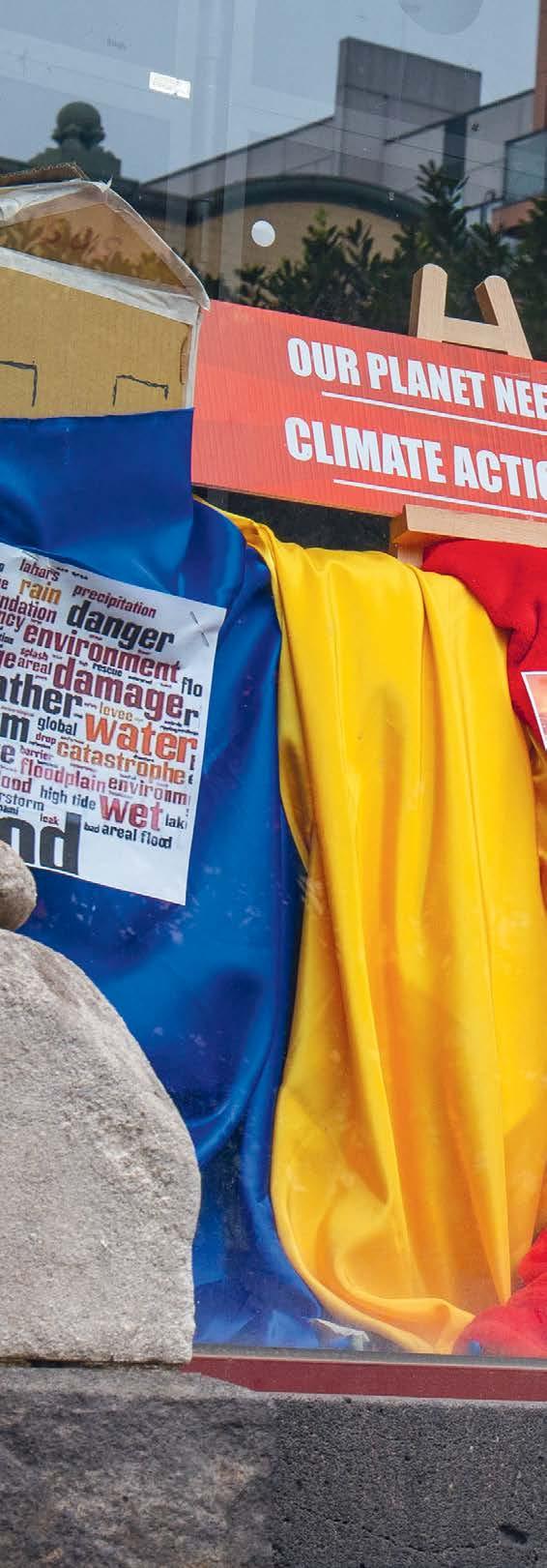
Sue says Queenscliff UC is an example
“The reality is that we are facing a very challenging future, because of geopolitics, social injustice and inequality, and climate change is only going to exacerbate all of those challenges.”
Désirée suggests any hope for arresting the enormous impacts of climate change will lie with our younger generations, the students and young people she often talks to about the issue.
“I mentor a lot of young people and students and I see there is a lot of interest on their part and a desire to do things differently, so maybe that new generation offers us some hope,” she says.
As a member of the Port Phillip West Presbytery’s Task Group for Climate Action, Sue Strong is able to see firsthand the efforts being made by many congregations in the fight against climate change.
She says St Luke’s Uniting Church in Highton, through its Repair Cafe, offers a
of another congregation determined to tackle climate change.
“The Queenscliff community is committed to the gospel and if they deem an issue to be important, because it fits within their values, they will work hard to ensure that it happens,” Sue says.
“So they have a natural bent towards tackling climate change.
“They have also worked at creating positive relationships with their federal MP, as well as the local mayor and councillors.
“Queenscliff speaks of having a profound sense of Jesus being present with people on the edge and as the earth is now on the edge, their efforts are bent towards caring for both.
“They shared that, ‘we only care for what we are deeply connected to, so if we love the earth we will care. We need to begin with nurturing our relationships to earth and each other and then science can help’.”
Mark Zirnsak says it’s the actions taken by congregations such as St Luke’s and Queenscliff that will contribute much to the fight against climate change.
“There are some easy things that can be done by congregations, like encouraging the use of energy-efficiency measures that will actually save them money,” he says. “It makes sense to look at something like rooftop solar panels, or swapping to green power.
“Then we move to big challenges like what do we do about gas usage across all of our properties, and I know that retrofitting gas is not a cheap thing to do.
“We can also look at something like the vehicle fleet used by the Synod and
"We thought as a congregation it was time to look at solar panels as a means of reducing our carbon footprint."
Brunswick UC member James Clough
how they might be swapped over to electric vehicles.
“That won’t be cheap but we do know that the price of electric vehicles will come down over time and that we don’t have to replace the entire fleet of vehicles by tomorrow, so you can progressively switch to EVs.
“I actually think congregations can take quite significant steps without there being a big cost.”
While there are obvious economic benefits in arresting climate change, Mark Zirnsak says it’s an issue that also needs to be looked at through a social justice lens.
“Climate change brings to the fore
issues of global injustice and inequality,” he says.
“The irony is that the countries which went through industrial development and created most of the problem with their emissions are not the ones most heavily impacted by climate change.
“Those affected most are low-lying Pacific Island countries or those like Bangladesh which are financially impoverished and are feeling the weight of the negative impacts of climate change.
“If you live in a Pacific Island country you are facing the real prospect of eventually it becoming uninhabitable and not having access to fresh, clean
water due to rising sea levels. There is a real injustice around the fact that these people haven’t created the problem but will bear the brunt of it, and I think something like that should motivate us to take as much action as we can to mitigate climate change.”
As he reflects on Kevin Rudd’s words from 15 years ago, Mark clings to a sense of hope around what is in store for us.
“I am hopeful but the challenge we face as human beings is that we tend to respond well to immediate crises, whereas climate change is a very substantive problem for us globally that needs immediate action which has to be sustained over decades,” he says.
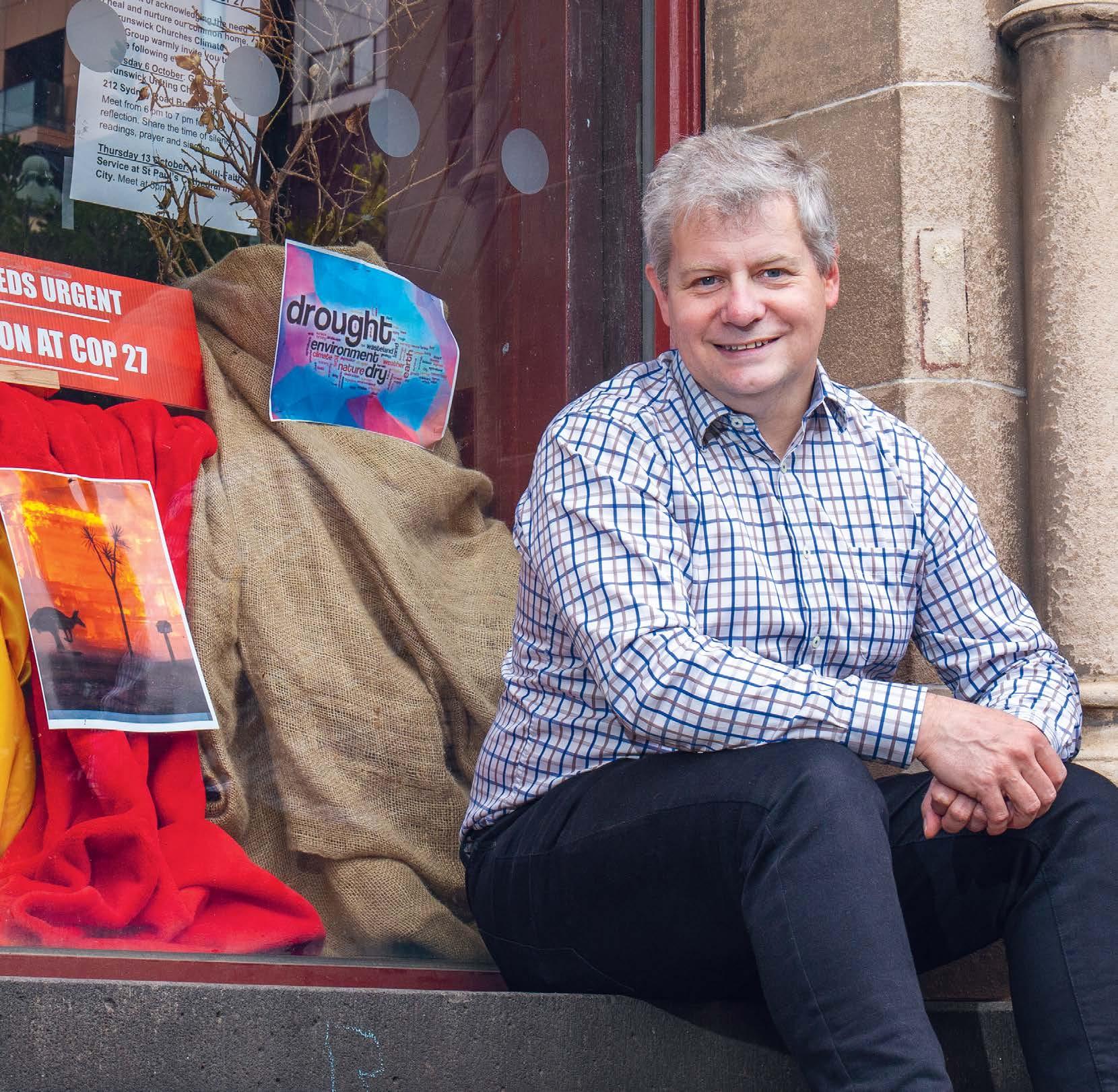
Last year, 51 people went to work in Victoria and didn’t come home. In Tasmania, the number was five and, Australia-wide, the figure was 194.
They are the raw statistics but they don’t detail the pain inflicted upon the grieving families – the husbands, wives, children and parents - left behind to deal with the trauma caused by workplace deaths.
This year, GriefWork, an organisation established to assist bereaved families in Victoria, celebrated its 25th anniversary.
GriefWork, which is part of Uniting Vic.Tas, also supports veterans and their families affected by the trauma of military work.
GriefWork founder Bette Campbell-Phillips knows what it’s like to lose a loved one at work. Her son, Dean, died in a work-related accident in 1991.
“I was a spinal injury educator and counsellor (when Dean died), so when it happened, I thought to myself ‘I’ve got this’,” Bette says.
“He was my only child, but I eventually decided to get help and I told the counsellor ‘I feel like half my life has been ripped away and she said, ‘I don’t know what you mean’.
“Unless you’ve been through it, you don’t know what it’s like to say goodbye to your loved one, send them off to work and for them to never come home.”
Before GriefWork was established, there was little support for those grieving following a workplace death.
“I met a young woman who, after the death of her husband, was told ‘don’t worry, you’ll marry again’,” Bette said.
“Over the past 25 years, we’ve supported more than 500 families across Victoria after work-related deaths,
suicides and other traumatic deaths at work.
“We’ve also campaigned for heavy vehicles to be classified as workplaces and included as workplace deaths and on industrial manslaughter laws.
“Every year, we hold a memorial to truck drivers who have lost their lives at Alexandra and a walk in Bendigo commemorating work-related suicides which regularly attracts 500 walkers.
“The journey after a workplace death is typically a long one – it can take years – and involve investigations, inquests and court cases, so our support is openended and takes many different forms.
“We supported a family this year with their hobby farm and gathered a 4WD club to do some working bees and repair their fences. After her father’s death, we helped a young girl who was a big Hawthorn fan to present the guernseys to their AFLW players.”
Bette says people experience grief in different ways and sometimes, when inquests and investigations are involved, the trauma is ongoing.
“For some people, the grief can be as raw 20 years on as it is 12 months later,” Bette says.
“Dean was only 20 – we never expected to say goodbye and for him not to come home.
“Many people put their grief into a little box after the death of loved one at work. They put all their focus on the court case or the investigation, and when that all ends, it hits them again.
“That’s why we’re there at every stage to provide them with support.
“The landscape has changed so much in 25 years – there’s more awareness of the importance of workplace safety and supporting families after a death.
“There’s always going to be things that go wrong at work, but it’s about making it as safe as possible.
“GriefWork is something I’ve put my heart and soul into and I feel like it’s my legacy to Dean. To be able to help families at one of the most difficult times in their lives is important.”
For more information about GriefWork, visit www.unitingvictas.org.au
The day I sit down to chat with Heathmont Minister Brendan Byrne on Zoom, I’m quite intrigued by the T-shirt he is wearing.
It carries a short but sharp message which, as I discover during our conversation, says much about Brendan’s values and how they drive much of his attitude to life.
“If you’re not angry you aren’t paying attention”, is the simple but effective message on his shirt.
A request for Brendan to expand on that theme leads to a fascinating 30-minute chat about being on the side of the underdog in the fight we call life, and why social injustice and inequality should be making us all angry.
It’s that sense of injustice and inequality that drives so much of what this man of many hats is about.
Aside from his day job as a Minister, Brendan is also chair of the union which represents faith workers, a podcaster, and social commentator in general.
I kick off our chat by asking him what, in particular, should be forcing us to storm the barricades?
“Oh, quite a few things actually,” is his quick reply.
“Generally speaking, the structural issues that contribute to injustice, and yet which are assumed to be, not just inevitable, but in fact necessary for
the proper running of things, and the proper ordering of human life, but which contribute to everything from climate change to economic inequality.”
Brendan’s anger stems from the belief that countries such as ours have been co-opted by an approach to economics which, rather than placing human dignity at the heart of social policy, has instead led to a deepening of divisions and inequalities.
On the night he became Prime Minister, Anthony Albanese promised that “no one would be left behind”.
If that’s going to be the case, Brendan says, there is a ton of work to be done to fix a broken system.
“The issues that we're facing today are the inevitable outcome of what some observers call the neo-liberal ascendancy, the fact that since the late 1970s, early 1980s, economic thinking around the world has been dominated by neo-liberal economic ideology,” he says.
“That ideology has emphasised the freedom of markets, which effectively translates to the freedom of the powerful and the wealthy, particularly as manifested in the corporation as an institutional form, to do as they like, and to act as they like, with very little restraint from government, and very little regard for the welfare of the
community, or the environment, or anything that might be seen as limiting their capacity to generate profit.”
Brendan’s outlook is also born from a lived experience that makes him acutely aware of what being part of an underclass feels like.
A Melbourne boy, he grew up in Glen Waverley as part of a Catholic family who knew what tough times meant.
“I grew up in a working class family, and kids are acutely conscious of the realities of economic difference,” he says.
“And growing up, my siblings and I were very aware of the economic differences between us and many of our peers, and so it was imprinted on me from a very early age that there are some people who are disadvantaged and even discriminated against, right from the outset, through no fault of their own.
“For some people it's a matter of race, for some it's a matter of gender; for others it's a matter of class and socioeconomic status.
“My parents worked every hour that God sent just to keep a roof over our heads, and to pay off a mortgage that wouldn't even qualify as a deposit these days, but which still consumed over 60 per cent of their income.
“I can certainly recall as a kid my parents being terrified that the next knock on the door would be the sheriffs
come to evict us because they were behind on their mortgage repayments.”
It’s poverty’s impact on human dignity, something that he has observed as both a child and Uniting Church Minister, that drives Brendan’s attempts to want to make a difference.
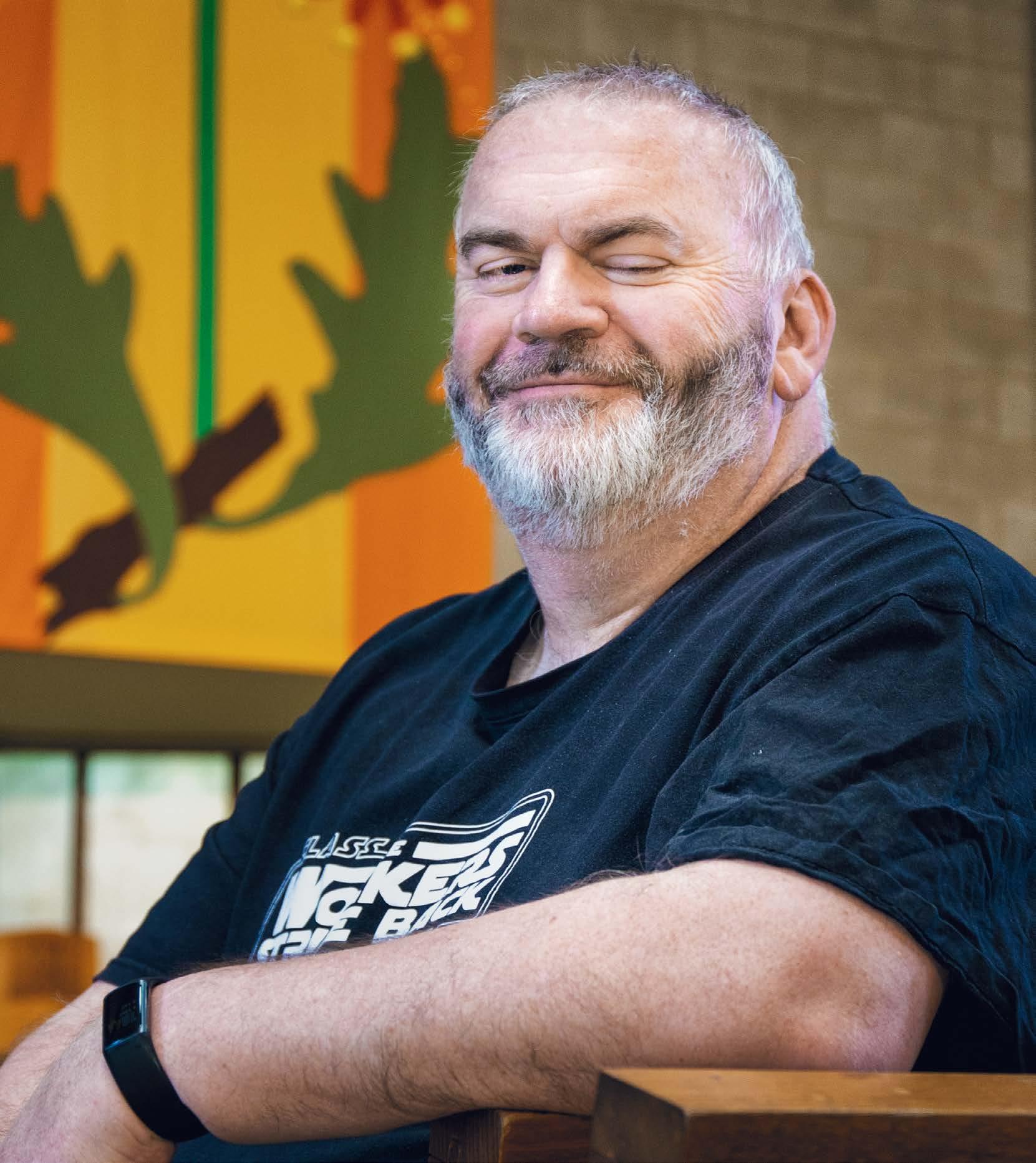
“It's not simply a matter of access to material resources, or access to cultural resources, or educational resources,
economic disadvantage and inequality is one of the most powerful detriments to human dignity,” he says.
“One of my saddest encounters as a Minster involved a pastoral conversation with a young working-class woman some years ago, in which she spelled out the daily pain and humiliation that she experienced because of her low socioeconomic background.
“She knew she was poor, and she knew that she looked poor, and she knew that her appearance automatically became the basis of assumptions about her that other people made.
“They assumed that she was lazy and that she abused her kids, and that she did drugs and was a bad parent, simply because she was poor and she looked poor.
“And I think that stripping of human dignity on a daily basis is deeply embedded in economic injustice.
“What makes it worse is that our economic orthodoxy is reframed as a meritocracy, so that if you are wealthy and successful and can access material, cultural and educational resources, it's because you deserve to, because you are a morally decent and upright person.
“And it’s an economic orthodoxy that also wrongly suggests if you are unemployed, if you are poor, if you don't have access to those resources, it's because you're lazy and spend your money on alcohol, or gambling, or whatever, and you effectively deserve, not just to be poor, but to be punished for being poor.”
While Brendan is a Minister within a Church that quite rightly, in so many ways, considers itself progressive on matters of social justice, he says it is missing one big trick.
He believes that, like much of the wider progressive movement, the Uniting Church is insufficiently engaged with class as a social justice issue.
“People who identify as progressive, and who identify as being concerned with social justice, have to understand that class is a social justice issue as well,” he says.
“Part of the problem lies in the fact that, with the advent of a globally dominant neo-liberal economic orthodoxy, class has been abandoned as a justice issue because people concerned with social justice also want to be seen as economic ‘realists’. Likewise, too many people have bought into this idea that we live in a classless society, that we have an aspirational meritocracy instead.
“And in order to product differentiate itself from the right, the progressive left has focused on the justice claims that are based on gender and race and identity, but have forgotten class, or abandoned class as a justice issue.”
There are two problems with that oversight, Brendan says.
“Firstly, it has alienated the working
class and made them hostile to justice claims based on gender and race and identity, when in fact the working class, through their own lived experience of injustice, ought to be the natural allies of those justice claims,” he says.
“The second problem is that it has allowed the neo-liberal right to coopt the working class by appealing to their sense of abandonment in order to pursue their own anti-progressive agenda.
“If we want to reverse this, progressive people, those who are concerned with social justice, have to recognise that class is a justice issue that goes alongside all the other justice issues.”
While he might be happily ensconced within its walls as a Minister, Brendan isn’t afraid to critique the Uniting Church in relation to issues of class and justice.
“Unfortunately, within the Uniting Church, and within wider society, my observation is that the operating assumption is that the working class are
as though our absence from that reality will have no impact upon our attempts at a church renewal.
“And I find it astonishing that the Church engages in this conversation while completely ignoring that reality, as well as the world of human harm, and the world of human suffering, that is hiding in plain sight right in front of us.”
Brendan’s podcast Ergasia has shone a light on issues of work, faith, theology and economics, but has been placed on the backburner while a new podcast, created with colleague John Bottomley, takes shape.
“Working the Lectionary is intended to be a resource to enable worship leaders and others who want to think about the connection between the world of work and the life of faith, to think about how texts from scripture actually speak into the world of work,” he says.
“So we're going to take readings from each week of the lectionary and reflect on those readings, and discuss how they relate to our lived experience of work.”
the source and sustainers of xenophobia, homophobia and misogyny, when in fact they are the victims of a profound socioeconomic injustice that enables those prejudices to exist,” he says.
“The upshot is that while the Uniting Church sees itself as a social justice church, along with the broader progressive movement, it doesn't, as a rule, see class as a justice issue.
“This is made worse by the fact that, like the other mainstream churches, the Uniting Church, over the course of the last 40 years, has largely abandoned the world of work and the world of waged labour.
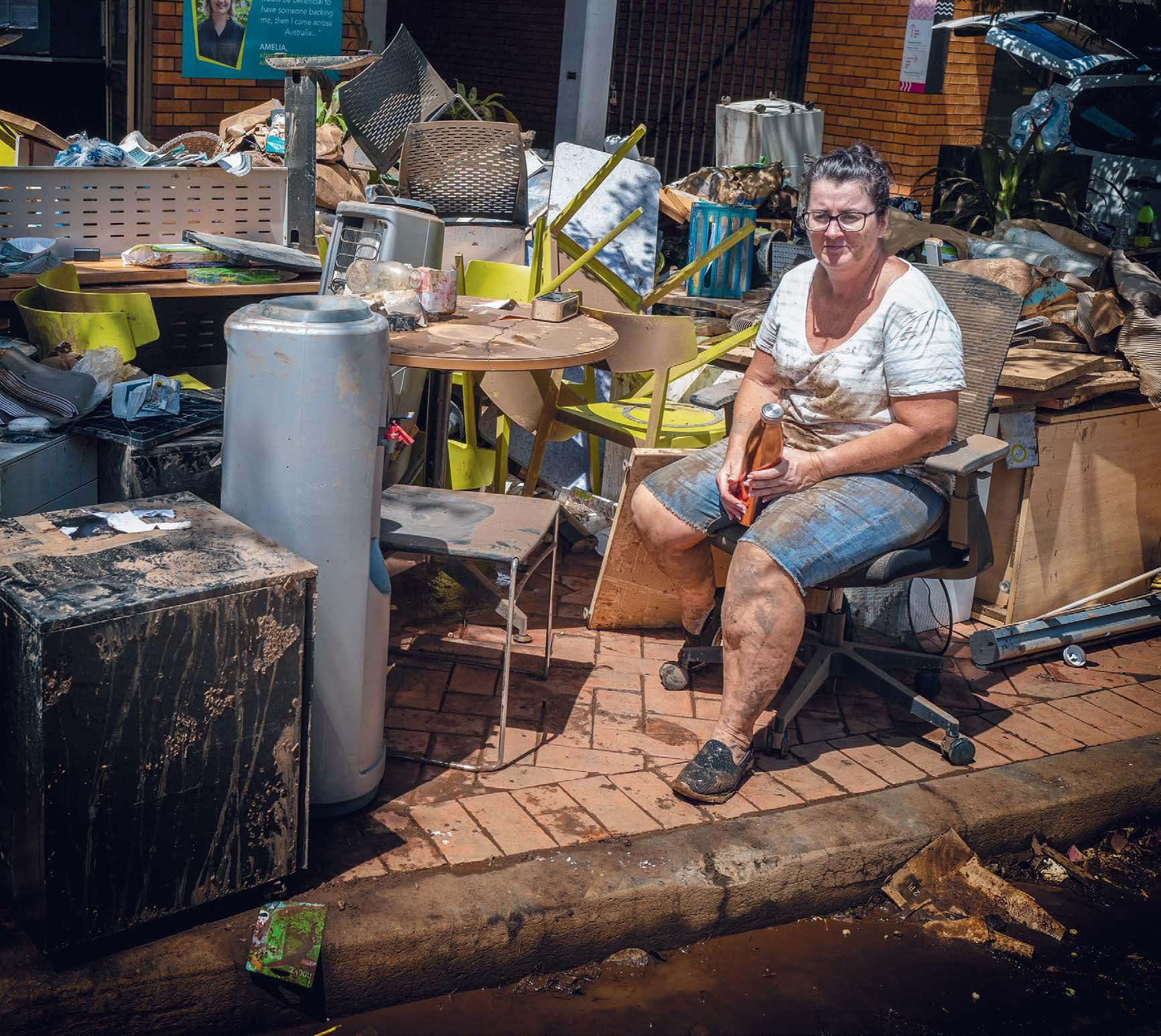
“Like all the other mainstream churches, it is almost entirely absent from that world, which is the primary social and economic reality of modernity. And yet we do all this talk about ministry and mission, about building new faith communities and renewing the church,
It might not make him the most popular Minister going around, but Brendan plans to continue arguing for class to be taken seriously as a justice issue, believing to do otherwise would be a dereliction of his duty as a follower of Jesus.
“In terms of ministry I recognise that I'm a working-class guy in a predominately middle-class church, and I have a sense of justice that is deeply grounded in the realities of class struggle and economic injustice,” he says.
“And I recognise that there are people within the Uniting Church for whom that is deeply uncomfortable, but I'm not going to stop articulating that sense of what justice looks like, precisely because I think it lies very close to the heart of Jesus's ministry, and his concern for the poor and for the economically disenfranchised.
“And I think it lies close to the call of the Gospel, for the world to be reorientated towards God's peaceable kingdom.”
"Class has been abandoned as a justice issue (because people) want to be seen as economic ‘realists’."
Brendan Byrne




Thousands of people have been impacted by the devastating floods across Victoria and Tasmania.





The Moderator’s Emergency Response Fund is a way for those of us wanting to help when current and future emergencies occur in Victoria and Tasmania, to contribute to communities which need immediate assistance.
This Christmas please give the gift of support.
Rev David Fotheringham, Moderator.
Donations can be made at any time, not just in response to a specific emergency.
For further information, or to make a donation, visit the Synod’s website: www.victas.uca.org.au
Children & Families ministry projects



Scholarships for children of soldiers




Students undertaking tertiary and secondary studies

Ministers with children attending primary or secondary school
Children from Uniting Churches in the Bright and Beechworth areas associated with Uniting Churches in the Bright and Beechworth areas
Developing and supporting educational initiatives in the regional areas of Victoria and Tasmania
Education for lay people, including lay preacher candidates and pastors
Continuing education for ordained and lay people in placement with the UCA
Women undertaking study who are currently working within the UCA or with the intention of service within the UCA
“I see with queer theology much the same trajectory we have gone through with feminist theology, that it comes from the margin (and is then) gradually received.”
This is a remark made by an Anglican minister married to a UCA minister who was her husband but has since come out as a woman. As reported, the marriage continues on a new basis.
The article (August edition) presents this relationship positively along with the theology behind it. This response engages not with the biographical details, but with the theology as reported.
The article refers to a course, run at Pilgrim Theological College, Melbourne, which “allowed students to cast a ‘queer eye on the Bible’”:
“As an example, when Jesus is setting up for the Last Supper and he says to one of the disciples, ‘go into the city and find a man with a water jar’, most of the time we pass over that reference, but then when you think about it and put transgender eyes on it you go, hang on a minute, a man carrying a water jar in those days would have been very unusual.”
The conclusion from this example: “So there were obviously queer people in the Bible and Jesus would have mixed with them (and) there are lots of stories that we are starting to see (through the lens of queer theory).”
A parallel is attributed to feminist theology:
“When women started reading the Bible with female eyes the stories were read in a different way and when you put a ‘queer eye on the Bible’, you start to see things that you didn’t before.”
But there is a difference. The inference in the above example is that an unusual occupation implies a different sexual identity. I have yet to come across a feminist argument that a woman with an unusual occupation (co-leading an army for example) implies that a woman is no longer a woman. Feminists tend to uphold sexual difference along with
a flexibility of roles. ‘Queer theory’ apparently upholds sexual fluidity and rigidity of roles.
“I think some conservative thinkers feel that queer people are coming along and trying to impose our own idea as the orthodoxy, but queer theology isn’t trying to replace anything, it’s just saying there is another way of reading the Bible,” says the Uniting Church minister and adds: “(It’s about) understanding that the Uniting Church is a diverse community and there will be people at different stages of the journey, but if we are serious about being pilgrims on the way we have to keep moving, and this is one area in which we can do that.”
Pilgrims on the way to where? At what point does the road fork in two and some take a path that does not lead to the promised end? In that case the journey is not the same journey. To assume it is, is to impose an alien idea on ‘the right understanding of (the) faith’.

This is not to say that orthodoxy as we know it, including influence from the Enlightenment, is beyond critique. The Uniting Church prays that God will constantly correct what is erroneous in her life, on the way to the promised end.
“The church has become obsessed with a very small number of individual texts and failed to look at the whole,” claims the Anglican minister. Pilgrims on the way to the promised end will keep an eye on the whole without losing sight of guideposts en route.
It is of course true that God is beyond sex and gender as is claimed in the article. God is beyond sex and gender in the way that God is beyond all human language. God is not beyond a love story, couched in terms of sex and gender, in which God visibly acts in the life of the Church. There is more to be said in this area, much more than “a very small number of individual texts”.
We'd
Email us at crosslight@victas.uca.org.au Do not exceed 200 words and include your name, title (if applicable) and suburb.
Crosslight is a bi-monthly magazine produced by the Communications and Media Services unit of the Uniting Church in Australia Synod of Victoria and Tasmania.

Opinions expressed in Crosslight do not necessarily reflect those of the editor or the policies of the Uniting Church.
Crosslight accepts advertising in good faith. Acceptance of advertising does not imply endorsement. Advertising material is at the discretion of the publisher.
Advertising deadlines
Bookings (February, 2023) December 19, 2022
Copy & images for production January 05, 2023
Print ready supplied PDF January 19, 2023
See crosslight.org.au for full details.
Distribution
Crosslight is usually distributed the first Sunday of the month. Circulation: 16,000
Staff Editor
Stephen Acott (03) 9340 8819 stephen.acott@victas.uca.org.au
Advertising and Distribution Adelaide Morse (03) 9340 8800 adelaide.morse@victas.uca.org.au
Communications Officer
Andrew Humphries Ph: (03) 9116 1400 andrew.humphries@victas.uca.org.au

Graphic design and print services
Carl Rainer (03) 9340 8826 carl.rainer@victas.uca.org.au
UCA Synod office
130 Lonsdale St Melbourne Victoria 3000
Feedback & correspondence crosslight@victas.uca.org.au
ISSN 1037 826X
Next issue: February, 2023
love to hear from you
We swear on the Bible that these sentences appeared in church bulletins or were announced at church services
The Fasting & Prayer Conference includes meals.
The sermon thismorning: “Jesus Walks on the Water”.
The sermon this morning: “Jesus Walks on the Water”. The sermon tonight: “Searching for Jesus”.


Don't let worry kill you off - let the Church help.
Miss Charlene Mason sang “I will not pass this way again,” giving obvious pleasure to the congregation.
At the evening service tonight, the sermon topic will be “What Is Hell?” Come early and listen to our choir practice.
Eight new choir robes are currently needed due to the addition of several new members and to the deterioration of some older ones.
Irving
Benson & Jessie Carter were married on October 24 in the church.



